
BISHOP RESPONDS: Bishop Holohan replies to the West Austalian Page 7


The Parish. The Nation. The World.
Thursday March ,
Perth, Western Australia ● $1 Western Australia’s Award-winning Catholic newspaper
A CHAMPION: Bill O’Grady was an outstanding athlete and layman Page 2
PRIEST RECALLED: Fr Linnane was a man for Perth’s people Page 7
Catholic TV in Perth Australian Bishops launch national television presence
First screenings went to air this week
The Catholic Church unveiled a new television presence from March 1, with the launch of Australian Catholic Church Television on a new Foxtel
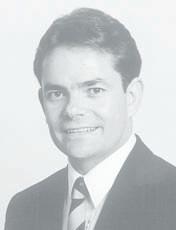
Digital and Austar Digital community channel.
Aurora TV is a new community channel available on the basic package of Foxtel and Austar. It will go out on Channel 183 and provides for faith-based groups, not-forprofit social service companies and non-Government organisations to have a voice on Australian TV.
Dr Richard Leonard SJ, Jesuit priest and director of Catholic Church Television Australia (CCTVA) said the Catholic Church was approached to be involved.
“For many years now the Church has had little direct presence on Australian television and so the Bishops Committee for the Media seized the opportunity to have access to an increasingly important television outlet where we can put to air programmes from which we think the Catholic and wider community will benefit,” Dr Leonard said.
Foxtel will broadcast the Aurora Community channel free of charge, but CCTVA must pay for the acquisition and production of programmes, and the number of hours they are on air.
“Unlike running an entire channel, the costs and the associated risks in this venture are smaller for the Church,” Dr Leonard said.
“The amount of time we are on the air will only be limited by the money we can raise for sponsorship, programming and buying onair time.”
Aurora has made only two demands on participating organisations: their programmes cannot vilify anyone, and they must be of the highest production values. Other groups taking part in Aurora include the Salvation Army, Anglican Media, Mission Australia,
Continued on page 3
EXTRAORDINARY MAN
Cathedral mission hits Perth streets
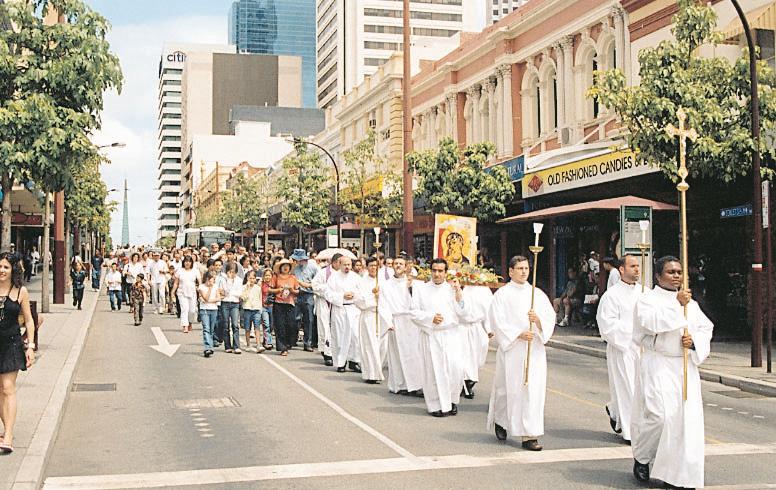
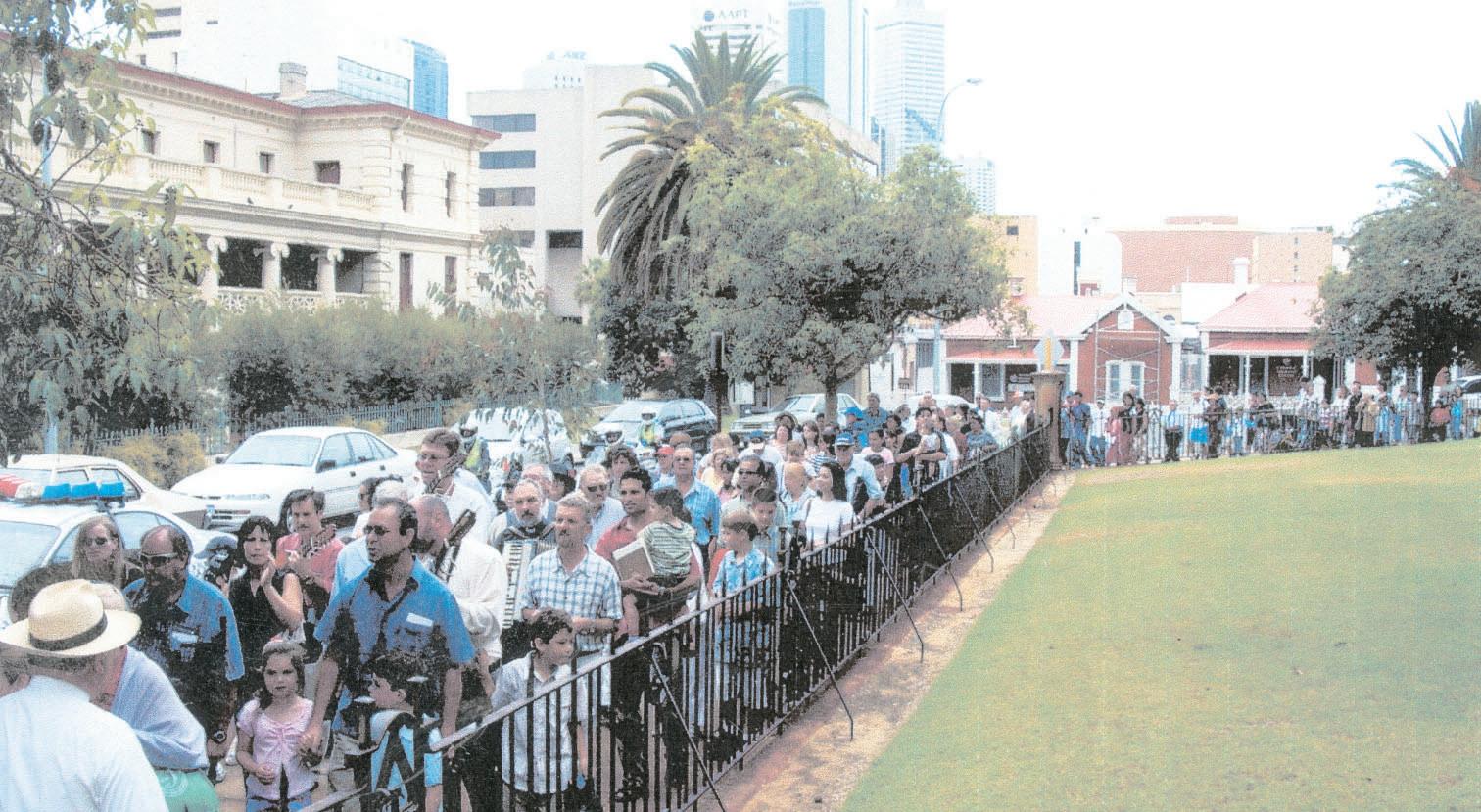
■ By Fr Milton Arias of St Mary’s Cathedral
The City of Perth has been given the opportunity to experience a new culture of life that the Church offers to all.
In the middle of our secular society the voice of the Church
Monsignor Luigi Giussani set out to engage youth and students and re-focus them on the one who matters: Jesus. He didn’t know he was starting something big.
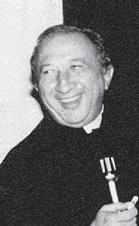
continues to be a trumpet blast, which calls people to wake from death.
On the first Sunday of Lent a group of people from the Neocatechumenal Way were sent by the Dean of St Mary’s Cathedral, Monsignor Thomas McDonald, to visit all the houses of the East
Perth and the City area.
The reason for the visits was to inaugurate the Parish urban mission.
It has been a wonderful experience for all, because they went leaving their children,
Continued on page 2
HOME ALONE
Visit brought family together after 60 years
We want your story about Pope John Paul II
It has often been said that Pope John Paul II carries miracles of grace with him wherever he goes.
The Record would like to gather up your personal stories about meetings, encounters or experiences related to this remarkable Pope.
The following is a true story that happened here in Western Australia, but since the nun concerned is no longer alive and members of her family may or may not be, no names are being used.
Many years ago, when religious tensions were much greater in our society than they are now, a young woman aged about 20 deeply upset her family by deciding to become a Catholic.When, a couple of years later, she decided to become a nun, the family severed all ties with her. She spent the rest of her life, about another 60 years, living the life of a teaching nun, helping and inspiring many young people and adults as nuns so often do, but she did it without contact with her own family.
This nun was seriously ill in hospital when Pope John Paul II came to Perth in November 1986.
One of her brothers watched the television coverage of the Pope’s
Continued on page 2
A wish for John Paul II
The Vatican opened an e-mail address this week for those wishing to send a message of closeness to John Paul II, rehospitalised since last week at the Gemelli Polyclinic in Rome. The address, announced on the Vatican’s Web page, is john_paul_ ii@vatican.va - CNS
Editorial/Letters - Page 6
I say, I say - Vista 4
The World - Pages 8-9
Passages - Page 10
Dear Padre - Page 12
Less time with Mum and Dad has contributed to more problems for more children in recent decades, says the author of a new study on day care and other parent substitutes.
Vista 1-3

soon to be on the Web
Page 10
INDEX
Fr Richard Leonard SJ
Those who answered Monsignor Thomas McDonald’s call to go out onto the streets of Perth do so in the heart of the city, above, and, earlier, as they leave St Mary’s cathedral.
Photos: courtesy St Mary’s Cathedral
Bill O’Grady was a champion
■ By Brian Peachey
William Walter O’Grady, who died at the age of 78 after a long illness on 24 February, was a champion in every way.
He was a champion husband to his late wife Helen for 53 years and a loving father to his five children; he was a champion for Christ and his Blessed Mother and a champion athlete. In his youth Bill O’Grady possessed extraordinary physical strength and was an outstanding athlete.
A few short weeks after his marriage to Helen Clarko in the Star of the Sea church in Cottesloe on 14 January 1950, he represented Western Australia in Hobart where he was runner-up Australian long jump champion.
Had he won the title he would have represented Australia that year at the Empire Games in New Zealand.
Twice more he was runner-up
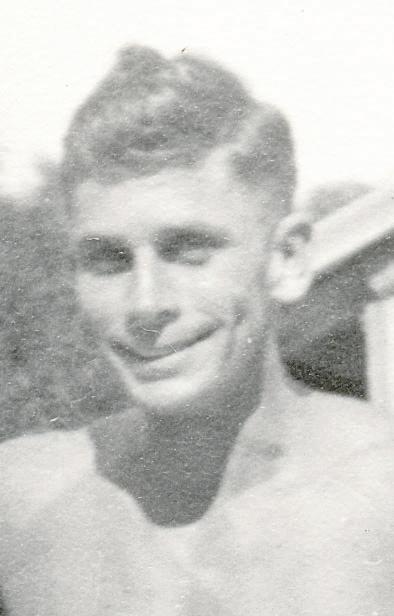
Australia long jump champion. In Brisbane he broke the Queensland record, but was beaten on the final leap by a mere 2 centimeters.
He was an unselfish member of the YCW Athletic Club, serving as its Assistant Secretary when the Club was undoubtedly the most
powerful in the State in the 1950s. He competed in a range of events, was a good 220 yards hurdler and won numerous State long jump and hop step and jump titles.
After serving in the RAAF in the latter part of World War II, he joined the Commonwealth Bank and built a home for Helen in College Road Claremont, where they raised five children and lived there until his death.
A reflection of his concern for the Church and his fellow man was his vigorous opposition to Communism.
Like his religion he wore his political convictions on his sleeve and actively opposed the Communist penetration of the Labor Party and the trade unions.
An indication of where he stood and how he was viewed was during the 1955 election of the ALP State Executive. The pro-communist left how-to-vote ticket placed him 57 of 62 candidates.
When the disastrous Labor Party split occurred Bill O’Grady threw his considerable support behind the Democratic Labor Party, was a member of the Executive and
stood as a candidate in the State Elections.
He was an enthusiastic supporter of Mr B A Santamaria and had a deep involvement in the Catholic Social Movement and later the National Civic Council.
As a vocational aspiration he left the Commonwealth Bank after a course of study in education and was employed as a teacher at Santa Maria College until his retirement.
He had deeply held concern for the collapse of moral standards in society and the killing of the unborn by abortion. Bill O’Grady never did things by half and those who were close to him were made aware of his concerns and were urged to pray the Rosary.
He was a long-serving member of St Thomas Parish, went to daily Mass and was active in the Marian Movement.
The sudden death of his muchloved Helen at Christmas 2003 was a devastating blow and one could be excused for thinking that it hastened his death and heightened his wish to be in God’s Kingdom
He is survived by his children Kelly, Michael, Jo, Clair and John.
Continued from page 1
visit to the home of the Little Sisters of the Poor at Glendalough and was so moved by his talk about the importance and value of the elderly that he sought out his sister and was reconciled with her.
Later, she met other members of the family, including nieces and nephews and grand nieces and nephews she didn’t know she had, and was able to love them all before she died.
If you have a personal experience with the Pope, or a story about how the Holy Father made a difference in your life or in the life of someone you know, please send it to The Editor, The Record, Box 75, Leederville 6902, or e-mail cathrec@iinet. net.au
Please include your name and telephone number, even if you do not want your name to be printed.
Cathedral mission reaches out to heart of the city
Continued from page 1 their meals on the stoves, and so on to announce Jesus Christ with the certainty that He accompanied them as he had promised to his disciples.
The places they visited are very interesting; you could see the contrast between the modern and the old style of houses which often represents a barrier between rich and the poor, but in this case the Church proclaimed her motherhood to all.
We had also the privilege to be
in the city malls on a Friday night and Saturday morning, singing and inviting people to come and see Jesus.
We encountered people from all walks of life and religion; many were impressed since for some of them it was the first time they heard about Jesus Christ.
Then on Sunday 27 February there was a procession through the streets of Perth. The procession was well attended by the parishioners who bravely shared their faith and
gratitude for the Church. This was a blessing for the City of Perth and we believe that through this mission, concretely involving people and relying on the intercession of Our Lady, a seed of hope has been planted in the heart of the people of Perth.
This Cathedral is a very interesting place. In this year and a half since the Lord sent me to be here, I have seen it like a little garden where people come and contemplate – and have lunch too but perhaps never
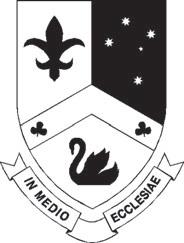
realising that this garden is also a living garden which has something to offer: Life, the same life that was offered to me many years ago.
Nor is the Church just a building. As the Pope says in his encyclical, Ecclesia in Oceania, the Church is a Community of Communites where the body of the risen Christ is manifested in the life of the faithful.
Today there are a lot of people who are hungry for the word of life but their own struggles do not allow them to make their plea.
This mission, then, is a call to all to begin a journey towards the Promised Land. Just as the Rabbi would say at the Jewish Passover ‘If anyone is hungry, let him come and eat with us,’ the same invitation is being proclaimed here at St Mary’s Cathedral.
Catecheses are every Monday and Friday 7.30 pm at the Parish Centre, 450 Hay Street. Transport and baby-sitting is provided.




Page 2 March 3 2005, The Record How to contact The Record Letters to the Editor cathrec@iinet.net.au PO Box 75 Leederville, WA 6902 Subscriptions Eugene Suares administration@therecord.com.au PO Box 75 Leederville, WA 6902 Advertising Eugen Mattes, Carole McMillen advertising@therecord.com.au PO Box 75 Leederville, WA 6902 The Record 587 Newcastle St, Leederville WA 6902 Tel: (08) 9227 7080 Fax: (08) 9227 7087 Journalists Jamie O'Brien jamieob@therecord.com.au Bronwen Clune clune@therecord.com.au Mark Reidy reidyrec@iinet.net.au CRUISING • FLIGHTS • TOURS Live your travel dream Personal service and experience will realise your dream Live your travel dream ® A division of Interworld Travel Pty Ltd Lic No.9TA796 Est 1981 200 ST.GEORGE’S TERRACE,PERTH,WA 6000 TEL 61+8+9322 2914 FAX 61+8+9322 2915 email:admin@flightworld.com.au www.flightworld.com.au Michael Deering Enquire about our Cashback Offer* * Conditions apply MANNING & ASSOCIATES OPTOMETRISTS Contact Lens Consultants Mark Kalnenas (B. optom) Grove Plaza, Cottesloe 9384 6720 Why not stay at STORMANSTON HOUSE 27 McLaren Street, North Sydney Restful & secure accommodation operated by the Sisters of Mercy, North Sydney. Situated in the heart of North Sydney and short distance to the city Rooms available with ensuite facility Continental breakfast, tea/coffee making facilities & television Separate lounge/dining room, kitchen & laundry Private off-street parking Contact: Phone: 0418 650 661 or email: nsstormtpg.com.au VISITING SYDNEY Year of the Eucharist Holy Hour Exposition, Vespers & Benediction Sunday evenings 6:30pm – 7:30pm St Joseph’s Priory Church Treasure Road Queens Park Holy Hour Norbertine Canons A LIFE OF PRAYER ... are you called to the Benedictine life of divine praise and eucharistic prayer for the Church? Contact the: Rev Mother Cyril, OSB, Tyburn Priory, 325 Garfield Road, Riverstone, NSW 2765 www.tyburnconvent.org.uk TYBURN NUNS Read it in the Record
Obituary
William Walter O'Grady
Reconciled by
‘86 visit
Salvatorians, lay and ordained, meet with leaders
Salvatorian leaders visit WA parishes
Salvatorian priests from all dioceses in WA and from Broken Bay in New South Wales assembled at St Simon Peter Parish, Ocean Reef, last Monday night for a community gathering with their Provincial and Vice-Provincial from Poland, and with many of the 500 lay Salvatorian Collaborators in WA.
The leaders of the Polish province of the Order, Fr Jerzy Madera and Fr Albert Poloczek had earlier visited all of the Order’s parishes and other activities in Australia.
These are the parishes of Gosford and Pymble in NSW, Ocean Reef, Balcatta, Greenmount, Merredin and Bruce Rock in the Archdiocese,

Esperance in the Bunbury diocese, Carnarvon-Exmouth in the Geraldton diocese, and Bidyadanga in the Broome diocese. They also visited Lumen Christi and Chisholm
Colleges where the Salvatorians provide chaplains.
In WA, they also met with Archbishop Hickey, Bishop Holohan, Bishop Bianchini and
Bishops launch Catholic TV
Continued from page 1
UNICEF, Red Cross, UNHCR, Australian Asian Youth Centre, Plan International, the Australian Film, Radio and Television School and Swinburne Film School.
Initially, CCTVA will broadcast Mass three times a week on Sunday, Wednesday and Friday at 10am, as well as putting to air Australian documentary films that focus on the liturgical season, a feast day, or a national observance.
“We want CCTVA to be of service to Catholics throughout Australia, as well as getting our message out to the people
who up to this point don’t come near the Church,” Dr Leonard said.
Foxtel and Austar Digital presently reach 750,000 homes, but with the phasing in of an inclusive digital service in the next few years, that number will climb to 2.25 million homes, with a projected reach of nearly 7 million Australians.
“That’s the sort of marketplace where the Church should have a voice,” he said.
The initial schedule which ran this week was as follows:
‘Mass For You At Home,’ a screening of the celebration of the Eucharist, went to air
Aparacida’s Café Emporium
The Victoria Park Centre – Opposite Motorama 443 Albany Highway Victoria Park 6100 WA
Relax with a Therapeutic Massage and Perth's best cuppa !
Newly Arrived !!!!
Aromatherapy products Giftware
Mt Romance – Albany products – 10% discount off normal price
Giftware for Schools, Parishes, Individuals
✧ Rosary beads, chaplets, Books, Pamphlets, Holy Cards
✧
✧ Christian supplieds and giftware
✧
✧
✧
The
Bishop Saunders. There were 19 Polish priests and one from Taiwan in the sanctuary for Monday evening’s concelebrated Mass, with the Australian Superior, Fr Boguslaw Loska, as the principal celebrant.
In his homily, Fr Madera said that Pope John Paul II had asked us to reflect on the Eucharist during this year so that we can come to know Jesus more fully and to serve him.
“The Eucharist is God’s greatest gift to the Church because it is Christ himself,” he said.
“Jesus wants to come into our lives to sanctify them.
“It is for eternal life that we come to know Jesus because he is the
one who was sent into the world.
“A Salvatorian is one who is sent to give Jesus to the world; that is the meaning of our lives.
“Lay collaborators are very important in putting our mission into practice.
“Thank you for being part of our Salvatorian life.
“Thank you for your prayers which give us strength and enthusiasm in our work, and thank you for your material generosity which helps us here and in Poland,” he said. About 80 people gathered in the Parish centre after Mass for a supper to farewell the visitors who left for Europe on Tuesday.
on Tuesday March 1 at 12 noon, Friday 5 March at 10am and 4pm, and on Saturday 6 March at 10pm.
The documentary film ‘Conflict Resolution’ screened on Tuesday March 1 at 12.30pm, Friday 5 March at 10.30am and 4.30pm and on Saturday March 6 at 10.30pm.
Conflict Resolution looked at one of the ways Caritas’s Project Compassion funds are put to long-lasting effect in East Timor by helping enemies to forgive each other and be reconciled for the common good.

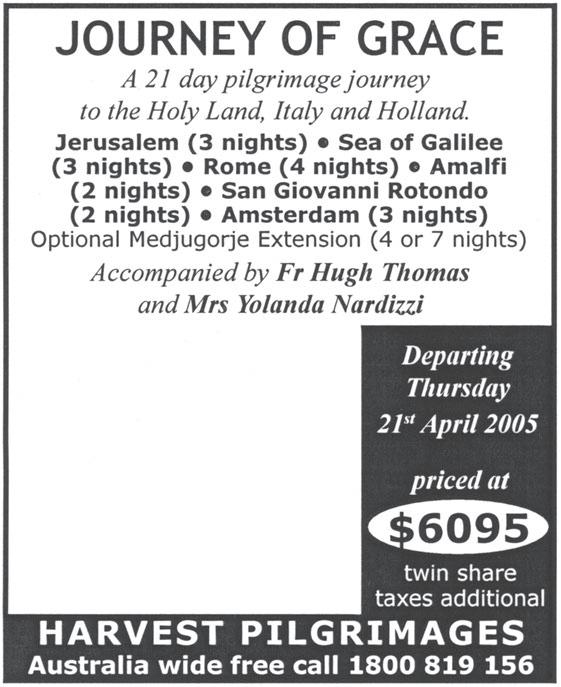
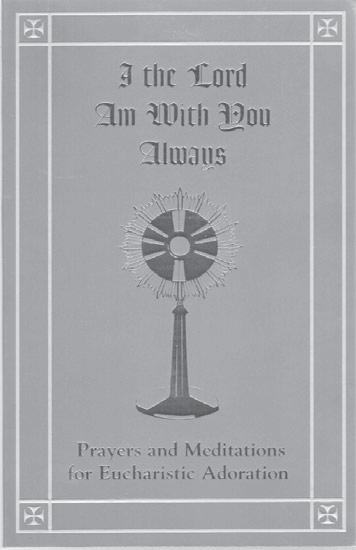

us be generous with him in going to meet him in adoration and in contemplation that is full of faith and ready to make reparation for the great faults and crimes of the world.”
(John Paul II: Dominicae Cenae 3)
“This book ... contains a wealth of prayers, thoughts and meditations, all centred around the Real Presence of Jesus in the Blessed Sacrament ....It is a privilege for us to be able to spend time before Jesus in the Blessed Sacrament. During those precious moments we sense Jesus' tremendous love for us. We bring to Him our joys and our sorrows, we talk to Him about the needs of those around us, and we ask for that deep conversion of the heart and mind that will make us one with Him ... I commend this book to all, especially to those who have rediscovered the beauty and joy of Eucharistic adoration..."
Most Rev. B. J. Hickey - Archbishop of Perth A beautiful set of Vatican Rosary beads will be sent to all those who give an additional charity donation of $10.00 or more to help the projects of Aid to the Church in Need for the persecuted Church in Sudan*. Please tick the box below if you would like to receive the Papal Rosary beads.

✧
✧
Contact Jo-Anne and Joseph
/ Fax 9470 1423 Mobile: 0414 624 580
Email: aparacidas@myaccess.com.au
Web: www.aparacidas.com.au
March 3 2005, The Record Page 3 OrderForm: “I the Lord Am With You Always” Send to: Aid to the Church in Need, PO Box 6245 Blacktown DC NSW2148 Phone/Fax No: (02) 9679-1929 E-mail: info@aidtochurch.org Web: www.aidtochurch.org Please send me: Number Amount . . . . . I the Lord Am With You Always ($12) . . . . . . . Plus $2 per item for postage & handling . . . . . . . Charity donation for Sudan * Total enclosed Please send me the Vatican Rosary beads * Signature . . . . . . . . . . . . . . . . . . . . . . . . .Exp Date . . ./ . . . BLOCK LETTERS PLEASE Mr/Mrs/Miss/Ms/Rev . . . . . . . . . . . . . . . . . . . . . . . . . . . . . . . . . Address . . . . . . . . . . . . . . . . . . . . . . . . . . . . . . . . . . . . . . . . . . . . . . . . . . . . . . . . . . . . . . . . . . . . . . . . . . . . .Postcode . . . . . . . BankcardVisaMastercard PG:517 Payment method:Cheque/money order enclosed OR Please debit my credit card ACN is an international Catholic charity dependent on the Holy See, supporting the faithful in countries where the Church is poor or persecuted. I the Lord Am With You Always Prayers and Meditations for Eucharistic Adoration First published in 1999, this second edition contains new material and a chapter for children of First Communion and Confirmation age. The Year of the Eucharist (10th October 04 - 29th October 05) “The Church and the world have great need of Eucharistic Worship. Jesus waits for us in the sacrament of love. Let
Just $12 a copy
Opening Hours
day Breakfast
Lunch
Farm
Produce baked daily 10% Discount for senior card holders and The Record readers
Monday – Friday and Saturday All
Brunch
Snacks
Fresh
occacions
Exquisite handcrafted jewellery for all
Crystal and glass Chimes
beauty
Health and
products
Mary Crofts new CD
ACE meeting place for group meetings and gatherings
Friends
✧ Catering for Parents &
meetings
Sporting and other groups
prayer
Mothers and Christian
groups
Phone
The Director of Catholic Educationin Western Australia invites applications for the above full-time position. All relevant information and documentation can be accessed on the office website www.ceo.wa.edu.au under employment. Enquiries regarding the position should be directed to Damian Doyle, Coordinator, Religious Education K-12 Team on Tel: (08) 9212 9272 or Email: re.faith@ceo.wa.edu.au. All applications, on the official form, should reach The Director, Catholic Education Office of WA, PO Box 198, Leederville 6903 no later than 4pm Monday 14 March 2005. CONSULTANT RELIGIOUS EDUCATION K-12 TEAM RE & FAITH FORMATION SECTION The Parish. The Nation. The World. Nation. World. Read it in The Record Record. Available each week in your parish Available each week in your parish.
Visiting Polish Salvatorian priests Fathers Jerzy Madera and Albert Poloczek at the Ocean Reef parish of St Simon Peter last Monday evening. Many of the 500 lay Salvatorian Collaborators from WA were present at the meeting.
Herded by gunships like cattle, shot
■ By Jamie O’Brien
People in Sudan are herded by helicopter gunships like cattle, shot, and often sold to other countries as slaves.
Students and families in Sudan’s south live in constant fear of being bombed and always make themselves aware of where the closest bomb shelter is.
These are just some of the facts of life for the people of Sudan, according to Caritas Humanitarian Aid worker John Ashworth.
As this year’s Caritas Lenten visitor for Western Australia, Mr Ashworth is helping to raise awareness of the importance of Caritas’s role in Sudan.
Mr Ashworth illustrated his report with photos of a classroom arranged under a tree, surrounded by holes in the ground for bomb shelters.
Originally a Catholic priest, Mr Ashworth has worked in Sudan for 22 years, first in the area of humanitarian aid, and now in the area of advocacy for peace.
But the most important fact, as


Mr Ashworth mentioned, is that among the turmoil and chaos is the presence of the Church. “It has taken on the role of mediator, protector and leader... The Church has



found itself in solidarity with the people and this has proved very important.”
The story of a Bishop who waited on the bank of a river all day in the early 1990’s to personally greet thousands of refugees returning from Ethiopia is one example of the Church’s strength in Sudan.
Mr Ashworth made his comments at a Professional Development talk for staff at The Record and other Church agencies.
At present he is in the process of collecting evidence of human rights abuses. These will be used to lobby against the government of the bombing of civilians.
As Mr Ashworth explained, Sudan is effectively a country
divided in two. The north, he said, is mostly desert and its population is of Islamic and predominately Arabic culture; the south is green, fertile and of African culture and Christian and native religion.
He said it is important to understand that the war in Sudan is not purely a war about religion.
“It is about an attempt to impose a culture,” that of the north over the south.
With a population between 25 to 35 million, (the figure is uncertain because a census has not been condcuted for decades) Sudan covers an area similar to that of Western Australia: approximately 2.4 million square kilometres.
It also has one of the second biggest oil fields in the African-Middle East region, one reason why Sudan has become important on the international scene.
“Imagine Western Australia without any power, technology or sealed roads,”
“That is the situation in Sudan,” he said.
The south is predominately controlled by the militia from the north, who through ethnic cleansing have been clearing the population so as to be able to move their own people into the region. He explained the difference between the two main wars in Sudan. The more recent one, which has gained world media attention, is located in and around Darfur in northwestern Sudan.
The long-running conflict in southern Sudan, meanwhile, began in 1955 and has continued down to January this year when a peace agreement was signed, with an 11 year break between 1972 and 1983.
But, he said, “No one in Sudan
believes that [the January] agreement is honest.
“People are afraid it will be dishonoured.” The reason for the pessimistic outlook is that when the Sudanese government finally signed the peace agreement they conceded far more than most observers ever thought they would have done.
In this long-running conflict covering most of half a century, more than two million people have been killed and a further four million displaced.
The situation in Darfur has only flared up in the past six or seven years and is a war of Muslim against Muslim.
Originally an independent country, Darfur was merged with Sudan under the time of the British rule in the early part of the 20th century.
The situation in Darfur is far more complicated, said Mr Ashworth, because of the mixture of African and Arabic cultures.
For the people of Southern Sudan, a key problem is the government’s deliberate policy of destroying their culture and language. The Government continues to educate children in a different language to their own, thus not allowing them to practise their local language.
“The people are being marginalised to make them feel like they are second class.”
Rape is also used as a common weapon of war, most commonly when women and children go to collect wood or water. “It is a fact they live with on a daily basis,” he said. And the psychological fear of being bombed is an ever-present torment. “It has disrupted their lives totally.”
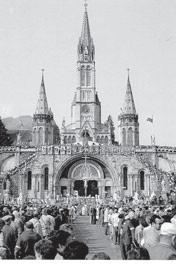
Page 4 March 3 2005, The Record Have faith in your insurance company Excellent policy with honest cover Up to 45% discount available Pay by the month option Call 1300 655 005 for a competitive home & contents insurance quote now. www.ccinsurances.com.au Nil excess for retirees over the age of 55 Cover for Investment & Holiday homes available
John Ashworth speaks to staff at The Record on the human tragedy of Sudan over the last half century.
Photo: Jamie O’Brien
Best supporting actor…

15 February. The play “Moll”
and
CORRECTION: In The Record of 17 February it was reported that Jessica Li Canty received instruction in the Rite of Christian Initiation of Adults (RCIA) from the Missionaries of Charity Sisters. This was incorrect. The Sisters regularly work with people whose lives are in turmoil and they do not instruct these people through the formal RCIA course but introduce them to a basic understanding of God adapted to their individual circumstances.

Passion in Claremont
The Way of the Cross will be dramatised by St Thomas’, Claremont parishioners on Friday, March 18 at 7.30pm. A selection of Marcel Dupre’s Way of the Cross will be played on the church’s newly installed historic J.E. Dodd organ by guest organist, Martin

Rein. A collection will be taken to cover costs. Last year’s presentation was very well received, so this year the parish is opening this dramatised Way of the Cross to a wider group. For further details, phone 9384 0598.
Ensemble Veritas
is now Perth’s premiere female vocal chorus consisting of 24 professionally trained adult singers, specialising in the classical repertoire.
Music for Easter: Wednesday March 23, 7.30pm
Fire and Ice: Sunday June 19, 2.30pm
Windows into Heaven: Sunday November 20, 2.30pm
All concerts to be held at Subiaco Parish, 1 Salvado Rd, Subiaco
Discounts for multiple concerts, concessions also available
Contact: Veritas: 9386 3063 or St Joseph’s Subiaco: 9381 0400

St Thomas More College
(within the University of Western Australia)
Golden Jubilee Reunion
Sunday,
March 13, 2005
Commencing with Mass at 2.00pm, followed by afternoon tea
Special Guest: Fr John Begley
All Ex-collegians 1955 to 1973 are invited to attend
RSVP: (08) 9386 0111 or stmcssec@cyllene.uwa.edu.au by Wednesday, March 9, 2005
NEWMAN COLLEGE EDI
Enrolments – Year 8 2006
There are a limited number of places still available for Year 8 2005

Newman College is a Catholic Co-educational secondary school.
Applications are now invited for admission into Year 8 for 2006 and beyond
An Information Evening will be held Wednesday 17 March 2004, starting at 7.30pm in the Champagnat Chapel on the Churchlands Campus (entrance via Empire Ave)
For further enquiries and to register your attendance please telephone Mrs Gay Carroll on 9204 6305
Year 8 2006 Enrolments close Friday 9 April 2004
College tours are available
Please contact the College on the above number for bookings
March 3 2005, The Record Page 5
XÅÑ|Üx TäxÇâx? V{âÜv{ÄtÇwá
Father Al Leong was presented with a cheque for $1,370 by the character “Moll” (Ann Barker) from proceeds of a fundraising night for World Youth Day at Holy Family Como. Parishioners filled to capacity the Irish Club Theatre in Subiaco for the fundraiser on Tuesday
concerned the presbytery in the Parish of Ballast where a new housekeeper changed the lives of the canon and his unfortunate curates. The comedy was well received by the audience
the appearance of Fr Al in a cameo role as a new curate added a comic surprise in the final scene.
RECORD READER SURVEY RESULTS NEXT WEEK!
Trust in princes
The following is an unsigned editorial titled “Trust not in princes,” which appeared in the February 21 issue of America, the US Catholic weekly published by Jesuits.
“Put not your trust in princes,” the Psalmist advises. Friendly Israeli civil servants have given similar advice to Catholics dealing with today’s Israeli politicians. Given the recent history of relations between the Church and the Israeli government, it is a counsel born of hard experience. For, though no crisis has been declared, relations have been deteriorating badly. Recently the Israeli government told the nation’s Supreme Court that it is not bound by a 1993 treaty with the Holy See. That declaration is an affront not only to the Catholic world but to all who take international agreements seriously.
The Fundamental Agreement between the Holy See and the state of Israel was intended to establish a legal framework to govern relations between the Catholic Church and the Israeli state, which until then were regulated by a mishmash of rules dating to the Ottoman Empire. The agreement led to the Vatican’s recognition of the state of Israel. Critics of the agreement warned that the Holy See had played its only card (diplomatic recognition) in return for a promissory note. More than 11 years later, it appears that is exactly what happened. Israel has not kept its promises.
In a response to a petition before the court, the government asserted that the accord, though duly ratified by the Cabinet, is not binding on entities of the Israeli state. Sadly, the government stand on the treaty is not new. As early as 1997, Archbishop Claudio Maria Celli, who had signed the treaty for the Holy See, complained of Israeli officials’ evasive pleas of ignorance of the treaty in attempts to resist implementing its provisions. “It is obvious that if state officials ... do not know of the existence of the treaty or have not been helped to grasp its spirit,” he said, “the agreement will never be more than a piece of paper, a kind of dead letter.”
PO Box 75, Leederville, WA 6902
Tel: (08) 9227 7080, Fax: (08) 9227 7087 cathrec@iinet.net.au
Archbishop Celli’s remarks caused a stir, but the Israeli noncompliance continued. Only in 1999 did the government publish the treaty text in the official register, a move that was supposed to make the agreement obligatory on state agencies but once more failed to have the desired effect. A Vatican source close to the negotiations told America, “There has been much talk of ‘an historic achievement,’ of a new kind of relationship, and so on, but no real consequence, no actual implementation, which there must be if the entire ‘historic’ exercise is not to be a sham.”
A key provision of the Fundamental Agreement required further negotiations on legal and fiscal matters, but in the meantime it upheld the historic rights and exemptions of Church institutions until a new agreement could be put in place. The immediate occasion for the government’s disavowal of the treaty was a Church petition to halt attempts to enforce taxes in violation of those provisions. At the same time, the government either suspended or failed to engage in the mandated negotiations.
“There has been much talk of ‘an historic achievement,’ of a new kind of relationship, and so on, but no real consequence, no actual implementation, which there must be if the entire ‘historic’ exercise is not to be a sham.”
The situation of two Catholic hospitals illustrates the deteriorating legal and political situation in which Catholic institutions now labour in Israel. Both are works of the Sisters of St Joseph of the Apparition. St Louis Hospital in West Jerusalem is dedicated to the care of the terminally ill. Teddy Kollek, when he was mayor of Jerusalem, turned to St Louis to care for the city’s HIV/ AIDS patients. St Joseph’s Hospital, in the Sheikh Jarrah neighbourhood of East Jerusalem, has served a largely Arab Israeli and Palestinian population and trained nurses for community service. In defiance of the Fundamental Agreement, the Jerusalem municipality has threatened to take action against St Louis for nonpayment of taxes, and the Ministry of Finance has demanded tax payment from St Joseph, threatening the closure of both hospitals.
In parallel moves, in 1999 the government abrogated an agreement with four humanitarian organizations, including Catholic Relief Services, and it has taken action to enforce taxes on the Mennonite Central Committee and the Lutheran World Federation. The Lutherans run Augusta Victoria Hospital on Mount Scopus, a major health care facility, also in Arab East Jerusalem.
“Treaties must be honoured” (“pacta sunt servanda”) is among the most elementary principles of international law. What, then, we ask, does Israel’s appalling pattern of noncompliance reveal about its attitude to the Christian presence in Israel? If the Fundamental Agreement is not recognised as binding, what is the government’s true policy toward the Catholic Church? If Israel cannot be relied upon to honour the Fundamental Agreement, which of its promises, if any, can be trusted?
The two sides resumed negotiation on February 15. Israel could demonstrate its good faith by announcing in open session plans to implement the decade-old treaty.
Truth vs trash
In The Record of 24 February you have been criticised for your article of 17 February dealing with the report in ‘The West Australian’ on the Vatican. Father Fitzsimmons said you should publish the truth, not trash, and Michael Leek OSB suggests you apologise to the editor of the ‘West’.
Walking the talk
Many years ago I read a story.
I am not certain of the accuracy of the story or of my own recollection of it but it went something like this:
Way back in the mists of Japanese history, it was a custom for when the elderly had reached the point in their lives as to be judged weak, unable to contribute productively to the village or just an unjustifiable burden to his or her family, their children would take them to the top of the nearest high mountain and leave them at the mercy of the elements.
One such elderly mother was one day being carried to her fate over the strong shoulders of her oldest son when he noticed that, every now and then, she would reach out a hand and break a small branch. Consumed by curiosity he stopped his long trek up the mountainside, put his mother down on the ground and asked her, “my task is difficult enough, why are you breaking branches?” She looked at him with a mother’s loving eyes and answered “I do it so that you do not get lost on your way back my son.”
I often wonder if we, as Catholics, have judged the teachings of the Church to be weak, unproductive or a burden.
Being what I term a ‘P-Plate’ Catholic, meaning that it is just only six years since my confirmation, I have looked to the examples of other Catholics to gain a deeper understanding of my faith. After all, it is the faithfulls’ responsibility to evangelise and within Our Lord’s house is the best place to start. Sadly, it is by observing the actions of others within Church and within the most important act of worship of all – Mass – that I have learned how not to praise, honour and give thanks to God.
I fear for other newcomers who follow our footsteps and our poor examples, as we pat ourselves on the back for our ‘goodness’ and actually look forward to the day of judgement because we are so confident that there is a gold pass to heaven already awaiting us, instead of recognising and correcting our faults.
I fear that they will watch us arrive after Mass has commenced and think that it is acceptable to do likewise even though we are obliged to be bodily present, pay attention and have the correct intention for the entire Mass.
I fear that they will watch us arrive without due reverence, chattering loudly, calling out to
In my view your 17 February article was demonstrating that the ‘West’ article was trash, not truth, and in the circumstances a foray into humour was appropriate. Mind you I had my own criticism of your article. In your suggested poll we were required to phone either Aunty or Uncle on our views. As I am 75 years old, or young, depending on your point of view, I found it difficult to contact them.
I suggest a further poll as follows: do you buy ‘The West Australian’ to be informed on Vatican affairs, or to qualify for the ‘Win the Holden’ competition?
Mr B O’Leary Dunsborough
friends in other pews and giggling. When we don’t ignore the tabernacle, we usually just settle for a perfunctory nod rather than going to the trouble of bending our knees. We don’t recognise the real presence in the Holy Eucharist yet expect our Lord to recognise us on the day of judgement.
I fear that they will watch us play the liturgical music as if we are auditioning for Australian Idol and are keen to ‘show our wares’ rather than just supporting the text of the hymns.
I fear that they will watch us push into the line for Holy Communion when we are not in the state of grace.
I fear that they will watch us, as accolytes and special ministers, removing the Holy Eucharist from the tabernacle in a disrespectful manner akin to fetching beers from the fridge and using the sign of the cross to bless children whilst distributing Holy Communion.
So as we follow the trail of sacraments and teachings that the Church has made for us to find our way back to God, let us make it our Lenten promise to make the trail wide and free of pitfalls for those who want to walk the path with us. We (and I am as guilty of much of this sad behaviour as many others) must realise that we can’t fix the wrongs of this world until we fix the wrongs in our own hearts and minds.
Geoff Snell Perth
Legitimate
Aristophanes, Horace and Juvenal must be rolling over in their ancient graves! Martial is probably penning a new biting epigram! Recent criticisms of The Record’s spoof of The West Australian’s phone poll on whether the Pope should resign seem to allow no room for satire as a legitimate form of journalism, and indeed, of literature.
The West Australian itself follows a venerable tradition of satire in its editorial cartoons as well as in occasional editorials and feature articles. The Frenchman Francois Rabelais, the Russian Nikolai Gogol, the Englishmen Alexander Pope and Jonathan Swift, and the American Ben Franklin were all noted for satiri-
cal comments on issues of the day, and they have found a place in the pantheon of writers for doing so.
There are two schools of satire: “Juvenalian” (bitter – after the Roman satirist Juvenal), and “Horatian” (mild, following the Latin lead of Horace). I found The Record’s satire to be Horatian, and neither Juvenalian nor juvenile.
I read between the lines of at least one of the critical letters the usual lament that The Record is not on the cutting edge of leftist politics, Church or otherwise; but that’s another issue.
True, The Record could have published a “dignified” criticism (which few would have noticed) of The West Australian’s nowfamiliar custom of writing articles that are either biased against the Church or ignorant of the subject. Instead, it took another approach: a legitimate one, a mildly satirical one. Many noticed; mission accomplished.
Fr Timothy E Deeter Mount Lawley
Footballers
The recent behaviour by players of the Newcastle Knights rugby club cast waves way beyond rugby strongholds.
It is obvious the action taken then by the NRL 12 months ago was not productive. A problem cannot be solved, if the problem is not understood. Then, pandering to political correctness, the rugby hierarchy appointed academic, Catherine Lumby, associate professor of media studies at Sydney University, to lecture the players on “how to treat women.”
If young men are spoon-fed a diet of soft and hard core pornography through their formative years from various sections of the media, you can imagine how effective a lecture would be.
The two major problems here are unsupervised binge drinking and the craving for recognition as a comic from their peers. After 33 years in commercial radio my experience has taught me that natural comedians are born, not made - proved by the fact that these boofheads can’t distinguish between humour and stupidity.
Frank Bellet Petrie, Qld
Page 6 March 3 2005, The Record Perspectives editorial
Around t he tabl e dnuorA t eh lbat e LETTERS TO THE EDITOR
editor
letters to the
Home alone
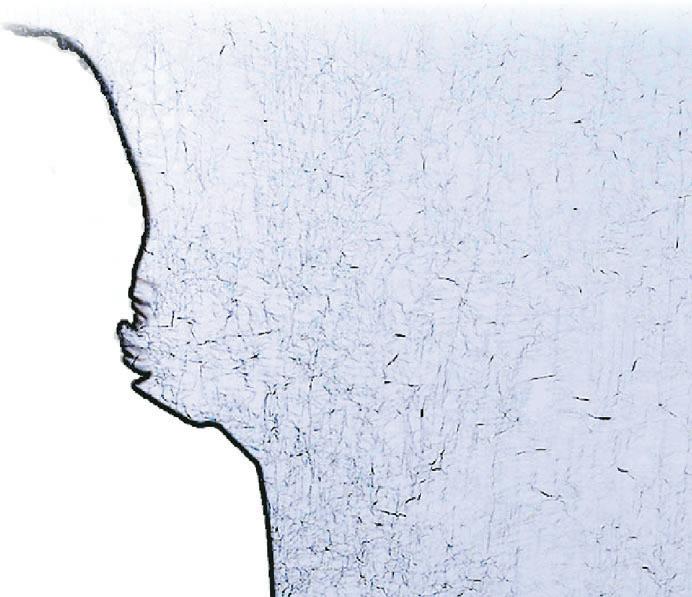
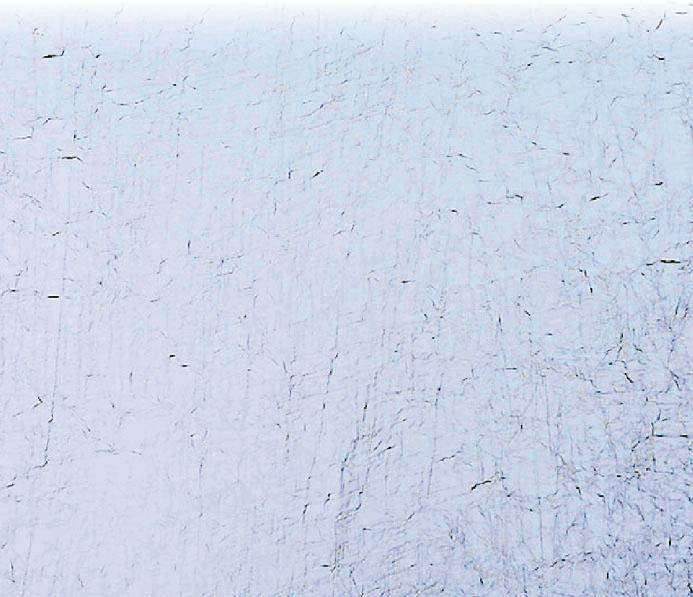
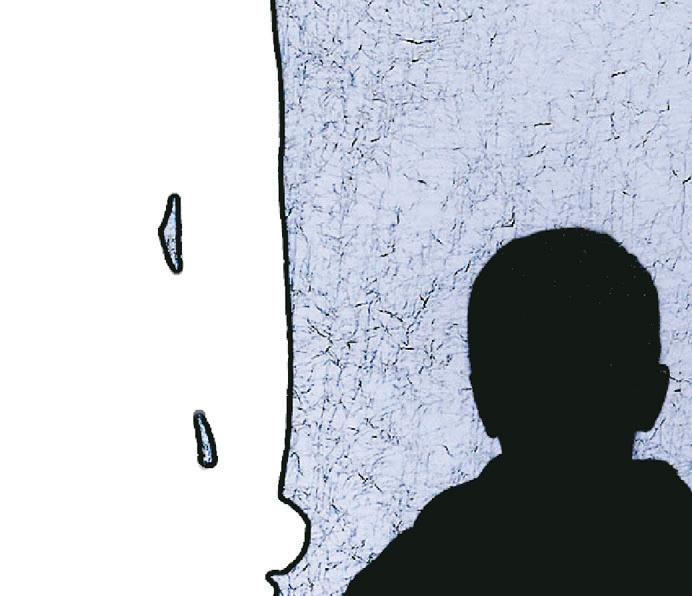



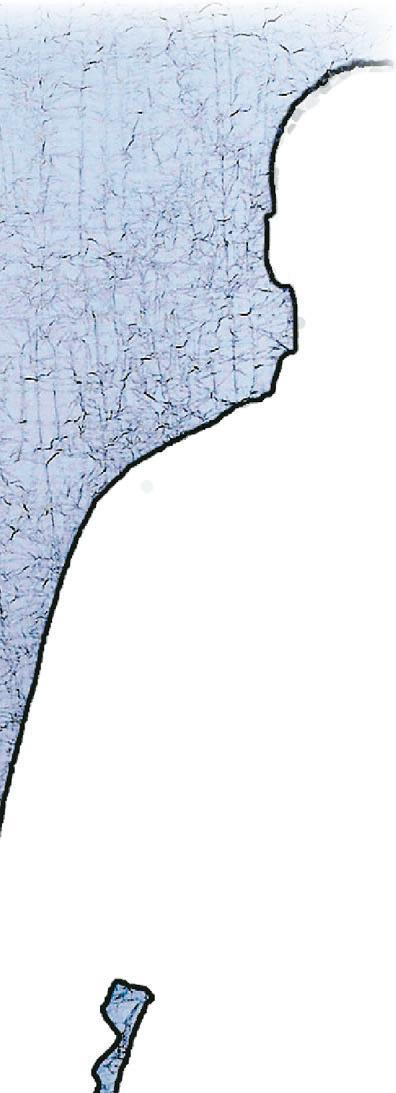
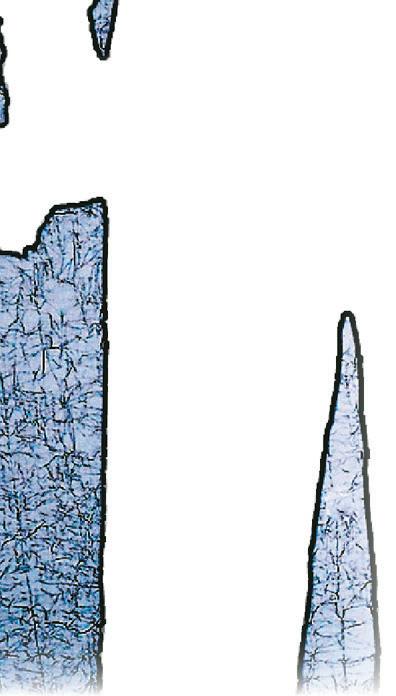
Superficially, affluent societies such as the US and Australia continue to become more and more sophisticated and techologically advanced. But are we really happy? There is growing alarm at the costs that are being exacted, especially from the most vulnerable - our children. Stanford University academic Mary Eberstadt has written Home Alone America - the hidden toll of day care, behavioural drugs and other parent substitutes. The separation of children from their parents, she says, is hurting everyone involved.
Vista March 3 2005, The Record Page 1
FULL REPORT - INSIDE
The disappearing family?
Parents “matter more than we think,” says Mary Eberstadt. Less time with Mum and Dad has contributed to more problems for more kids over the last few decades.
So says Mary Eberstadt, a part-time research fellow at Stanford University’s Hoover Institution and author of “Home-Alone America: The Hidden Toll of Day Care, Behavioral Drugs, and Other Parent Substitutes” (Penguin).
Eberstadt shared with ZENIT how this separation of children and their parents is producing unforeseen negative consequences.
Question: If children are better off materially than ever before, why are they beset by so many troubles such as psychiatric problems, obesity and sexually transmitted diseases?
Eberstadt: “Home-Alone America” is about this paradox exactly. On the one hand, children generally - like adults generallyare materially better off than ever before, particularly in the advanced nations of the West.
Yet on the other hand, this generation of American children is marked by acute problems that either did not exist before, or did not exist in anything like today’s proportions.
Juvenile obesity, for example,
family matters
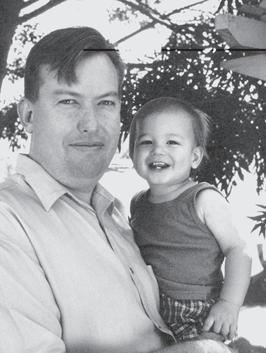
Ihas tripled since the early 1960s. Sexually transmitted disease is epidemic among teen-agers and young adults; of some 19 million new cases of STDs reported in 2000, say the Centers for Disease Control, half were found in people between 15 and 24.
Diagnoses of juvenile psychiatric problems such as depression, anxiety and “behavioral” disorders have skyrocketed - and so, too, have the psychotropic drugs used to treat them. Similarly, teachers in various parts of the country, from preschool on up to universities, report an overall deterioration of child and adolescent behavior.
Plainly, for some significant number of kids, life is actually worse - in the sense of riskier, sadder and more problematic - than it was for their parents’ generation. My book tries to understand why.
Question: Is there a common theme that connects the numerous problems of American children today?
Eberstadt: The common denominator is the one that Ockham’s razor dictates: For a variety of reasonsdivorce, working motherhood and shrinking family size - children are more separated from their parents and other family members than they used to be; and this separation is producing unforeseen negative consequences.
For example, such separation means that children and teen-agers are less supervised around temptations such as sex and food than they used to be; hence, obesity and sexually transmitted disease are rising.
Such chronic and unprecedented separation is also increasing the misery felt by at least some kids, which in turn affects the psychiatric and pharmaceutical statistics.
I also argue in a chapter devoted exclusively to teen-aged music that this generational unhappiness is fully and unmistakably demonstrated ad nauseam by almost every top-selling rock and rap musician in America; the many lyrics quoted there speak for themselves.
Both the empirical and cultural records of what’s happening with many kids prove that there has been downward emotional mobility for this generation.
Tracing those links between child problems and absent family is what my book is all about.
Question: Is the rise in mothers working outside the home a result of economic necessity or human choice?
Eberstadt: I observe in my book, and genuinely believe, that there is no “one size fits all” answer to the question of out-of-home parental employment. That’s something that only individual families can answer for themselves.
At the same time, if we step back from individual choices and anecdotes we can see clearly that as a society, we used to be much poorer; and yet the typical household still sacrificed financially to keep a parent in the home. Moreover, many also sacrificed emotionally to keep parents together “for the sake of the kids” - an idea now widely, and in my view wrongly, derided.
Today, again generally speaking,
homes are larger than ever, food is cheaper, cars more luxurious and families are smaller in size - yet the social expectations are exactly reversed; two-income families are assumed to be the norm.
How much of that move toward two incomes is necessity, and how much is an increase in material expectation and desire, are questions that haven’t yet come in for much scrutiny. But in a society as well-off as ours, those questions have real spiritual, as well as economic, weight.
Question: What developmental problems occur in children who spend large amounts of time in day care?
Eberstadt: Children are individuals, and of course different children respond differently to institutional care.
It’s safe to say that this kind of care has been shown to raise the risks to some kids of an increase in aggressive behaviour. It is also known to raise the risks to some kids of an increased likeliness of infection brought on by exposure to so many other children. Kids in day care are roughly half again as likely to get sick as are kids cared for at home.
Now, are there long-term effects of these short-term problems? This is the kind of question on which expert attention has been focused, and not surprisingly, given the number of variables involved, it is difficult to determine the answer.
But I think we should ask a different question than that of longterm outcomes. Surely there are
Taking advantage of Lent to teach children a deeper lesson
but we want to find ways in which to celebrate these things as a family. How can we create discussion with our children and explore more deeply this important liturgical season?
den with the boys. It sits on the table in the lounge to act as a visual reminder that we are in the season of Lent. Our Easter garden is a tray with a mound of green coloured sand.
Certainly society wants to have a discussion with them about how many Easter eggs they should get and how big they should be.
■ With Derek Boylen
hated writing in grade three. Doing creative writing was a contest of wills. Derek vs Mrs Eidelburg. Mrs Eidelburg won. Grade three also boasts my earliest memory of Lent. Mrs Eidelburg had us write down what we would be giving up. I remember concentrating really hard to come up with something creative but ended up settling for that old favourite; chocolate. My wife was a lot more creative than I. The earliest thing she remembers giving up was cheesecake. Wish I had thought of that. This year our youngest son Caleb will be baptised at the Easter Vigil Mass. It got me thinking about how we are preparing for this special milestone in our family’s life and about how we are preparing as a family for Easter. As individuals we often think about Lent as a time of prayer, fasting, abstinence and renewal. This has always been my personal experience,
This year we have decided to celebrate Lent as a family in five ways. The first is by making a family Lenten resolution. Karen and I have still made our own personal ones but we have decided as a family that we are giving up takeaway. As a child it seemed that Lenten resolutions were all about giving things up.
They can also mean doing something extra.
Abstinence goes hand in hand with alms giving. We are putting the money we usually have set aside for the occasional fast food treat into Project Compassion. Resolutions are all about making a positive change to our life. Either by reducing those things that weaken our Christian lifestyle or doing something new to strengthen it.
Secondly, we are creating more time for prayer. Usually we say prayers with each of the boys just before they go to sleep. This lent we started saying prayers together before little Caleb goes to bed.
Last week we have made a little Easter gar-
Three little crosses made from twigs and twine poked onto the hill and on the side is a tomb made with a toilet roll and rock. Whenever Karen and I see it we are reminded of Lent and our eldest will often ask a few questions when he sees it.
Elijah, our eldest, also has a new interest in collecting money. He finds coins everywhere.
I have no idea how, but his little eyes ferret them out. A Project Compassion box now lives on the coffee table in the playroom and we have explained to him that this is were we can put money he finds. The money that goes in there will be “for people who need some help.”
Lastly, as a family we are going to make an effort through Lent to try and live more simply. Lent is a great time to strip away some of the extra baggage and to make the effort, as family, to be a visible sign in the world of the kind of lifestyle that Christ desires for us.
When our boys think back to their earliest experience of the season of Lent I hope their memories are of the things we did as a family to become better Christians.
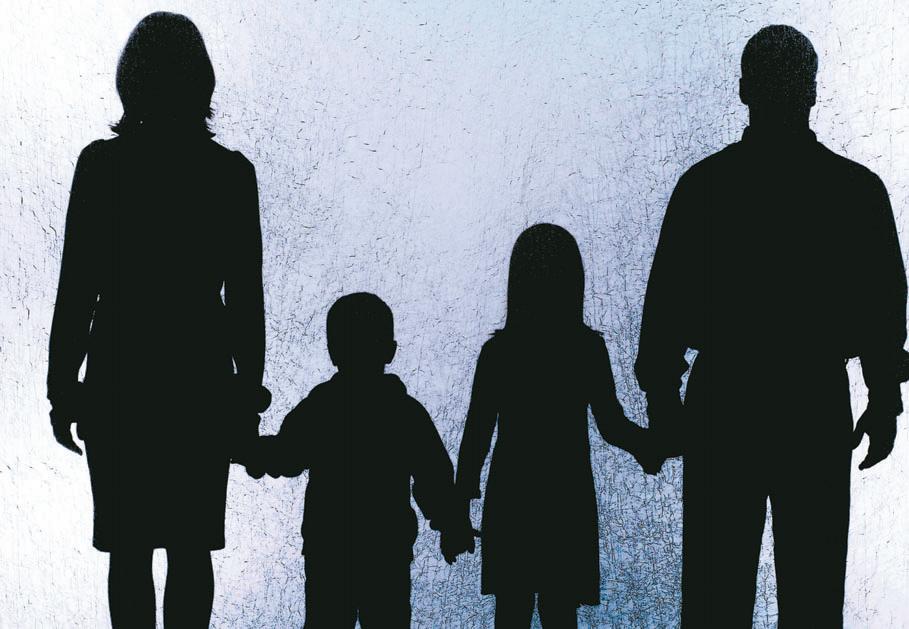
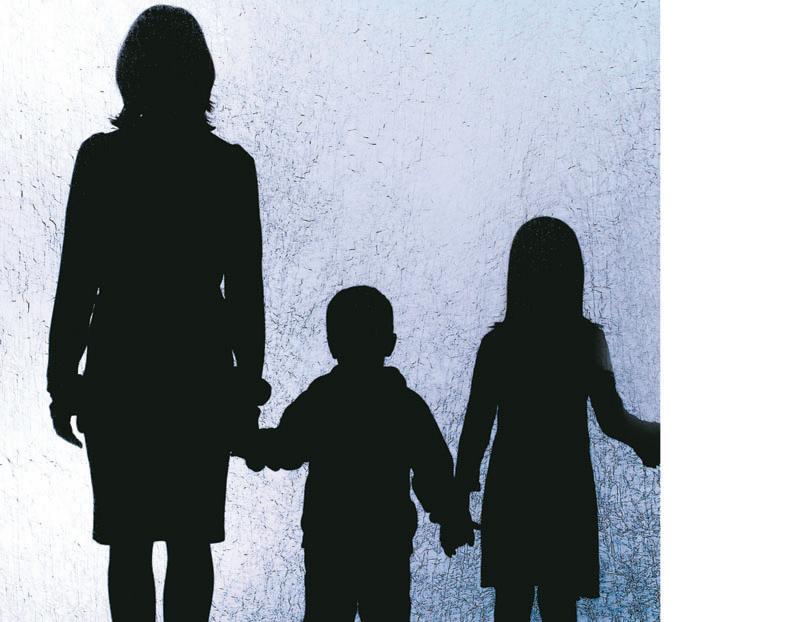
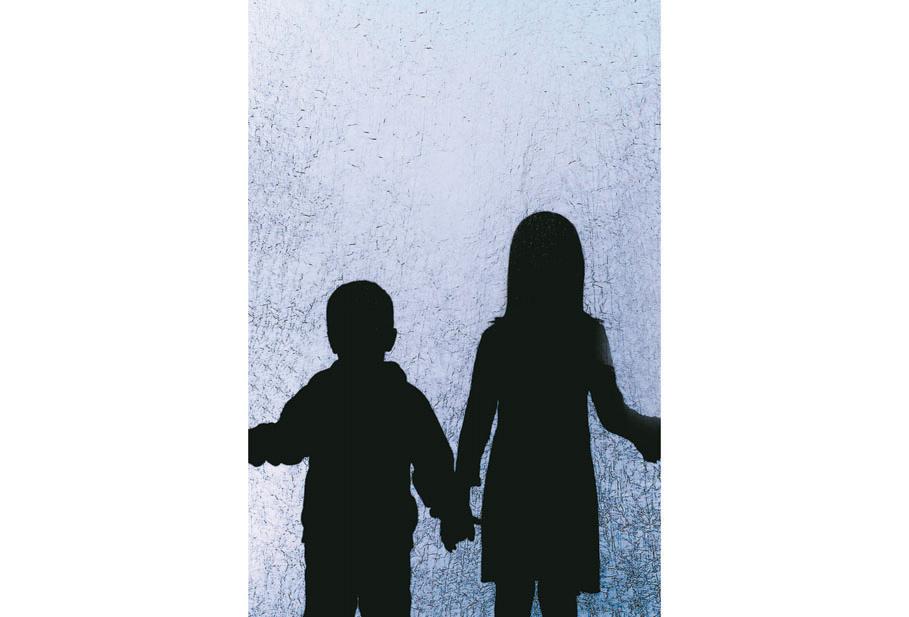

other measures of whether institutional care is a good idea for mothers and fathers who do have a genuine choice.
To put the distinction in philosophical terms, most research and commentary has been focused on a teleological question - “What is the ultimate cognitive and emotional outcome of institutional care?”rather than on a phenomenological one: “What is happening to that given child in the here and now?”
“What potential dangers does the over-medication of children pose to their development and society at large?”
I think that latter question, about immediate happiness and wellbeing, ought to have weight too. If day care increases the likelihood that an unknowing baby or toddler will be sick and unhappy - as evidence suggests that it does - then day care is not the best alternative for parents who actually do have a choice.
Question: What potential dangers does the over-medication of children pose to their development and society at large?
Eberstadt: Let’s distinguish first between medical and extra-medical problems. All of the psychotropic drugs in use today have potential physi-
cal side effects ranging from loss of appetite, dizziness, nausea and other well-known problems, to more extreme possibilities.
Last year saw the beginning of what might be a real re-evaluation of the psychotropic drug world as physicians and government agencies examined the possible increased risk of suicide in teen-agers taking antidepressants. And of course there is a separate potential physical risk in the form of the abuse of these drugs, particularly the stimulants. As is amply documented in my book, recreational use of these amphetaminelike substances is rampant, though practically no one in the medical profession acknowledges it. But quite beyond the question of the drugs’ immediate physical consequences are problems of a larger sort that I think are even more important. Psychologically, for example, what is the long-term effect of creating this new class of putative victims - of telling a generation of kids that they are defective from the inside out and need medication for life? We just don’t know.
Nor do we know anything at all about the spiritual dimensions of this very new phenomenon. For example, do psychotropic drugs arguably interfere with the reason necessary to exercising free will?
Does their chronic use undermine the subject’s sense of what he is and is not responsible for - i.e., his conscience? To my knowledge, Catholic and other theologians have not addressed these questions. Perhaps someone should.
Question: How has the culture shaped women’s attitudes and selfimage in regard to working outside the home?
Eberstadt: There’s not much question that several decades of feminist agitation have increased the pressure on women to leave home in order to find what’s called “fulfilment.” But feminists aren’t the only ones responsible for the ongoing devaluation of at-home mothers and the natural family. Men also play a role in that devaluation - not because they have been snookered by feminist ideology, but for the prosaic reason that there’s something in it for them.
After all, another paycheck makes fathers’ lives easier, too. Similarly, divorce is easier, and men are freer to walk away from their children when Mom is already working and won’t be left entirely destitute as she might have been if she depended on her husband’s paycheck.
So, feminist ideology is not the only engine of the empty-parent home. More pedestrian factorssuch wanting more money, more freedom and a more comfortable life - are also exerting a powerful gravitational pull on parents toward the workplace and away from their children.
Question: A recent Wall Street Journal article noted the importance of the family meal for familial and child health. What practical steps can working parents take to help foster the well-being of their children?
Eberstadt: It’s interesting how research of various kinds suggests that the family dinner hour is a good idea for all sorts of reasons.
One, it might offer some protection against overeating, since parents are there to police how much children eat and since people eat more slowly and a smaller amount when they have someone to talk to and are not sitting in front of a TV.
Second, family dinner hour has been linked in all sorts of studies to lower probability of teens engaging in smoking, drinking and sexual activity. It seems that having a warm adult body on the premises is good for two reasons: It exerts a chilling effect on certain perennial temptations; and it just plain makes most kids happy to be around their family routinely rather than being alone.
That’s the ultimate message that I hope parents and others take away from my book. Mothers and fathers don’t have to be perfect - fortunately for the fallen mortals among us. The mere presence of their parents matters more to children than many people in our feminist-influenced world seem to realise - again, not only to their long-term success in life, but to their immediate happiness and security in the here and now.
We who are privileged to be stewards of children and teen-agers, matter more than we think and are loved and needed more than current secular orthodoxy understands. It’s time to give the power of that love and need more intellectual and social recognition.
Work a threat to children
A stunning 180 million children are in particular danger due to their hazardous working conditions, says a report published by the British committee of UNICEF.
Published on February 18, the study, “End Child Exploitation: Child Labour Today,” affirms that worldwide one in 12 young people under 18 years of age is involved in dangerous work: slavery, forced labour, sexual exploitation or participation in the military. Of these, 97% are located in developing countries. UNICEF proposes improving the economic conditions of these countries as the solution. In the press release accompanying the report, UNICEF’s executive director in the United Kingdom, David Bull, explained: “One way to put an end to the exploitation of children highlighted in this report is by taking action to make poverty history and ensuring a commitment to more and better international aid.”
The report estimates that there are more than 350 million children, ages 5 to 17, at work. Of those old enough to work, under international standards, about 60 million are
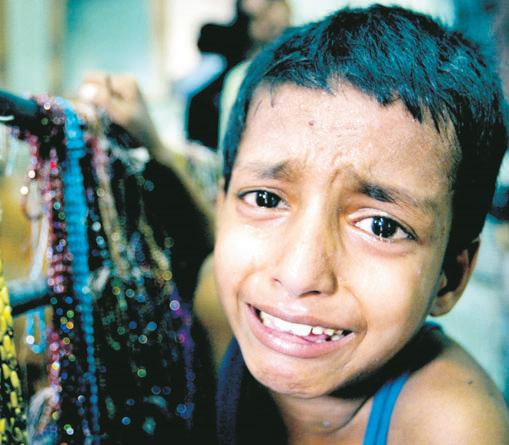
Africa. There, 41% of the 5- to 14-year-olds are known to work, compared with 21% in Asia and 17% in Latin America and the Caribbean.
Yet, due to its higher population, Asia has the largest total number of working children, 60% of the world’s total. While the vast majority of problems occur in developing nations, the report noted that children are also at risk in Western countries, albeit in small numbers.
In the United States, the children of Spanishspeaking immigrants are sometimes put to work on farms. The legal age for most farmworkers is only 12, if they are accompanied by their parents.
in danger of harm because they are involved in the “worst forms” of child labor. UNICEF further calculates that out of approximately 211 million working children under age 15, a bit more than half are involved in the “worst forms” of work. Combining the totals from the subgroups gives the 180 million figure. The problem is particularly notable in
In some European countries, minority groups such as Romany (or Gypsies) and recently arrived immigrants send their children to work while still below the minimum legal age for employment. The UNICEF report observed that in European Union countries children are now being brought in from Eastern Europe and Africa with a view to their economic and sexual exploitation.
The report also criticised the situation in Britain, where a plethora of laws and norms on child employment leads to a confusing legal situation. As well, the government has shown insufficient interest in enforcing the laws protecting children.
Page 2 l March 3 2005, The Record March 3 2005, The Record l Page 3 Vista Vista
- ZENIT
Salaj Mohammed Kasim, 7, weeps during a police raid on an embroidery workshop in Bombay.
Photo: CNS
Life Fulfilling











 ■ With Mark Reidy
■ With Mark Reidy
In August last year Mark Collier, a 26 year old Melbourne man with no medical qualifications, masqueraded as a doctor and treated over 100 patients. After his eventual apprehension Collier’s lawyer
To think that she had not been wanted or even named by her natural mother. She acknowledges that she does not know the motivations of her mother, but nevertheless, she was devastated by the revelation.
At first she stands in shock as she holds the birth certificate in one hand, but then she reaches with her other hand and picks up a Bible. She knows she is faced with a choice. Does she believe her emotions and her identity as an unnamed, unwanted child, or does she believe the Word of God that tells her that He engraved her on the palm of His hand (Isaiah 49:16) and that He knew her even before He formed her in the womb (Jeremiah 1:5)?
Ms Caine describes how she
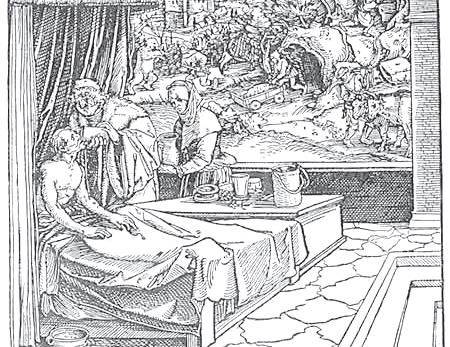
informed the Magistrate of his client’s childhood abuse, of being thrown out of home at 15 and of the sadness and loneliness of a man without a friend. He claimed that Collier had pretended to be a doctor so he could know what it felt like to be an important person in the community.
Now it would be easy to brush aside this story as an extraordinary tale of a broken but adaptable man. But I believe that we should not allow this opportunity of selfdiscovery to pass us by. You see, I believe that there may be a little bit of Mr Collier in us all!
While acknowledging that he has taken masquerading to its extreme, is there any one of us who is not at least a little discontented with who we are? We may believe that life would be more satisfying if we were taller, or had a smaller nose or bigger breasts. Or if we were wittier, had a better job, more intelligence or were richer or better looking? Or perhaps we believe that our lives would be more fulfilled if our parents had stayed together or if we hadn’t been bullied at school or if our father had spent more time with us?
However what we are doing, if we allow such beliefs to be validated, is, in essence, robbing ourselves of the fullness of life that God promised (John 10:10). Because to choose to believe them is to allow our identities to be formed by the “truth” of the world rather than the Truth of God.
Christine Caine, a Australian Christian Evangelist, wonderfully portrays this understanding in her book,” The Thin Blue Line”. She shares a pivotal crossroad in her life when, as an adult, she suddenly discovers that she was an adopted child. Upon further investigation she traces her birth certificate and finds on it the word, “Unnamed”. She is shattered by this discovery.
diversity matters
(contemporary human mobility and the stand of the Church)
How the Church is structured to support migrants and itinerants
■ With Tony Paganoni, CS
Only when diversity is seen as a treasure by Church authorities, only when pluralism is upheld as a value to be pursued with vigour and conviction - simply because it represents the best pastoral option for any given time and place – do the wider Church documents become relevant in offering practicable guidelines. Several decades of experience in pastoral ministry have convinced me that the Church’s guidelines and pronouncements, at both universal and local level on the pastoral care of migrants and refugees, are fraught with too many competing understandings.
Of course guidelines are in no way meant to be conclusive. Human mobility is in constant flux: conditions change. In the variety of approaches and solutions that they suggest, the documents of the Church seem to counsel any local church against allowing ad hoc responses to become the norm, but rather to put in place a system of flexible pastoral models and monitor their impact on migrant communities.
The supporting institutions at the service of the Universal Church
touch the life of the Church at several levels. First of all, the Pontifical Council for the Pastoral Care of Migrants and Itinerants, based in Rome, is the official voice of the Pontiff in matters related to human mobility. It organises congresses, publishes books and magazines and acts as a consultant to local bishops’ conferences in regard to all the groups involved in human mobility: migrants, refugees, seafarers, air travellers, nomads, gypsies.
The Bishops Conferences of a region or a nation act as a filter at the local level. According to the Instruction Nemo Est, some bishops are to be given responsibility for overseeing this specific sector in the life of the local Church. If the presence of immigrants or of migrants is minimal, one bishop could suffice. A National Director of Migration is usually appointed, with the task of coordinating activities at the national level (n. 23) and also has responsibility for overseeing the pastoral care of migrants at the local diocesan level. At the parish level, priests and religious minister to the diverse ethnic components of local churches. In Australia religious congregations have taken a leading role and
are still running the majority of ethnic chaplaincies, particularly in big dioceses. Historical documentation has yielded considerable insights: some congregations have been invited by the local church and others have acted off their own bat, always with the permission of Church authorities. Their response to the plight of migrants and refugees from Europe has been exemplary: the extensive network of chaplaincies has provided a focal point for many migrants: Italian, Maltese, Slovenian, Polish, Lithuanian etc... This took place despite some misguided assumptions, prevalent in the past and still around today, that the network of local parishes ought to be able to absorb migrant communities.
According to this view, diversity would be homogenised into a single structure, that is the parish, itself now in a constant state of flux for lack of sufficient personnel! But Church leadership is not first and foremost at the service of existing structures. Rather, first and foremost, bishops and priests are called to serve the people of God in the full God-given range of their diversity of languages and cultures.
made a conscious decision to accept God’s Word over the worldly facts, but how often have each of us chosen the opposite and allowed the world to dictate our identities?
From the time we enter the world, an endless deluge of information and emotion bombards us. We begin to form an opinion of ourselves based on the words and actions that we receive and these form the foundations of our future. We may be told or made to feel we are good or bad, pretty or ugly, smart or stupid, etc. These become ingrained in both our spirit and psyche and eventually bear the fruit of the seed that was planted. Subconsciously we become our own perceived reality and accept this as truth.
Our worthiness is then determined by a combination of what we have concluded and what society values as significant. And if our own perceptions do not live up to society’s standards, then we can view ourselves, and be viewed by others, as unworthy. This is in complete contrast to the message that Jesus gave us; that we are all children of God and our true identity is found in our acceptance of this fact. Accordingly, what we think of ourselves, what we look like, what we do or how the world perceives us, will never alter His love for us.
Interestingly, an accusation by critics of Christianity is that we have been “brainwashed” by a falsehood that serves only to control and exploit. But what if we were to inversely apply this logic? What if the truth of human existence is, in actual fact, that revealed by the Word of God and anything that distorts or disguises this reality is the real brainwashing?
If that was the case, then we could, along with Mr Collier, abandon our masquerade and start to see ourselve s and one another with the unconditional love of God.
Time to practice your life
■ By Jamie O’Brien
Life will throw all sorts of situations at you, Auxiliary Bishop Don Sproxton told Year 12 students at La Salle College recently.
Bishop Sproxton met with the students and celebrated a special liturgy, taking the opportunity to speak about Pope John Paul II and the impact his life has had on the Church.
Bishop Don said the meeting was important for the Year 12’s to know that their Bishops are thinking of them, and presented each with a booklet with some of the homilies of the Pope.
The Bishop talked about the life of John Paul II during World War II, when Poland didn’t exist as a country.
“The present Pope lived through a time when the Communist regimes were decapitating the Government, the culture and its people,”
“He lived through the same time you are beginning your dreams.”
The student said Bishop Don helped them to appreciate the strong beliefs La Salle College upholds, through the actions of the Pope.
“We received a message of encour-
Readers respond to Record
The Record wishes to thank the many readers who responded to its Readers’ Survey which appeared in the paper over the last month.
Many readers filled out the survey forms published in The Record, which were intended to
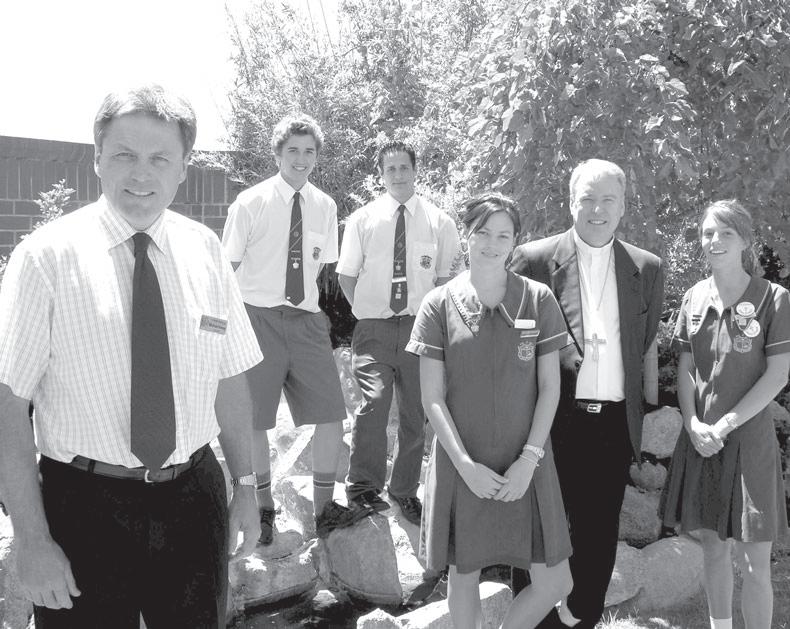
agement and the meaning of true Christian values that we can use in our society,” said student Joshua van Ross.
As well as explaining some of the experiences John Paul II has lived through – the invasion of Poland by Germany, the loss of his parents and brother, the impact of Communism in his life, Bishop
help the paper get a clearer picture of what readers like, what they don’t like and how they feel about the paper.
The information, which will be kept completely confidential, will be used to help develop the Record’s responsiveness to its audience. Five prizes, dinner for two at Apparacida’s Café Emporium, were on offer to read-
Don highlighted to the youth the importance of developing their own ideas. “Life will throw all sorts of situations at you,” he said.
“During this time you have been prepared and now is the time of putting into practise what you have been preparing for.”
“To bring about a change based on respect for the other person.”
ers. These prizes will be drawn after The Record goes to print on Wednesday 2 March and winners will be published in next week’s paper as well as being informed by telephone.
Record editor Peter Rosengren said he wanted to thank readers for their response which had been bigger, in terms of numbers received, than expected.
Page 4 l March 3 2005, The Record Vista
i say, i say
Principal Michael Kenny of La Salle College in Viveash, with students and Auxiliary Bishop Donald Sproxton.
Photo: Jamie O’Brien
Transparency, compassion, our goals
On Wednesday this week
Bishop Gerard Holohan of Bunbury released the following statement about further allegations against former clergy appearing in the West Australian newspaper.
positions of trust to abuse others, I believe the diocese must be transparent about this.
Third, all Church personnel serving today in the Bunbury diocese – ordained and non-ordained – are people of great integrity. The Diocese has never received an allegation of any kind against any of them. If there had been, Church regulations since the 1990’s would have required their removal from ministry.
that may be the result of a Police investigation. They do not want to go to the Police. To assist these people, the Church, as part of its Towards Healing process, finances a Professional Standards Resource Group (PSRG) to investigate their allegations.
an ex-gratia payment for healing purposes. The payment is not compensation in the legal sense, for no legal liability is involved.
Fr Kevin Johnston
any other victims, my naming him could do these people great psychological damage. I am sorry that the West feels no such constraint. I have followed this advice, despite my own preference for transparency.
The hurt to others
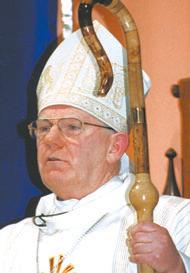
The West Australian last Saturday (26 February 2005) reported further allegations of abuse against two priests who previously worked in the Bunbury Diocese. This report will give rise to deep concern to all in our diocese. The purpose of this Statement is to give what background information I can.
Newspaper allegations of wrong doing by priests
A number of people have commented to me about their distress at recent newspaper reports alleging sexual abuse against children by two priests who once worked in this diocese. I can certainly understand their feelings. However I believe it is necessary for the diocese to face up to any past wrong doing if it occurred for the following reasons.
First, healing is fundamental to the mission of the Church, for it was founded by Jesus Christ, the Healer. If in fact there are genuine victims of sex abuse by diocesan personnel – ordained or non-ordained – it would be a good thing if these people could come forward and we can assist them towards their healing.
Second, Jesus made clear that his Church is for sinners who know their need for God [eg Mark 2:15-17]. In the Bunbury Diocese, Church personnel – present and past, ordained and non-ordained – have done fantastic work in a spirit of genuine service. However, if one or two Church personnel in the past have indeed misused their
The Church’s response to victims of the past
Across Australia, I am told that between half and one percent of priests over the decades have been accused of sexual abuse. The percentage of religious brothers is higher. The percentage is higher still in other sections in our society. The percentage of married people involved means that there is no relationship between sex abuse and celibacy.
One could be forgiven for being surprised that 99 percent of priests have been without blemish in this regard. Media reporting of past cases, without any acknowledgement of the great good done by the 99 percent of our priests over the decades, has certainly damaged the priesthood and the Church.
The Church’s response in this situation has been the Towards Healing process.
It has two aims.
The first is the swift dismissal of any Church personnel who is guilty of allegations of abuse. The second is to assist the healing of any victim.
The Investigation of claims
From the Church’s point of view, the best option for anyone with a claim of abuse against an ordained or non-ordained Church worker is that they go to the Police. The Police have the authority, skills and experience to thoroughly investigate such claims. The Police are completely independent from the Church. Going to the Police is the fairest way of dealing with all allegations, and is in the best interests of all parties.
Some people, however, cannot face the publicity of a court trial
The PSRG is at arm’s length from the Church. Obviously, it would be ideal if the Church was not funding this group as this funding might lead some to question its total independence. However, there is no other source of funding, and the Church needs the PSRG as part of its Towards Healing process.
The PSRG operates on the basis of guaranteeing complete confidentiality to all parties. Without this, people would not be forthcoming.
However, this guarantee can leave the Church in a vulnerable position if someone is unhappy with any outcome, or unhappy with the process itself. They can make claims to which the Church cannot reply.
This leaves the Church looking as though it has something to hide under the cloak of confidentiality. However, the Church must continue with the PSRG process as it has helped so many people across Australia since the 1990’s. The healing of victims is more important than avoiding pain for the Church.
The confidentiality provisions of the Professional Standards process have limited seriously my ability to respond to recent allegations by Mr Alan Rowe. This would not have been a problem if he had gone first to the Police, rather than after Fr Johnston had retired.
The healing process
Any claim by a victim for compensation from the Church must be treated by the Church on its merits with regard to principles of law.
However, where there is no legal liability, there remains a moral obligation on the Church to assist genuine victims of abuse towards their healing. For this purpose, the PSRG employs skilled professionals to assist the Church with assessing how it can help people towards healing.
A diocese or religious order does whatever it reasonably can to help a genuine victim. This may include
In 1997-1998, a PSRG investigation was conducted into an allegation made against Fr Kevin Johnston by Mr Alan Rowe. As stated in my Statement of 16 February 2005: Fr Johnston denied the allegation. This situation is one person’s word against another. Contrary to what was claimed in the West, the diocese is in no position to confirm or deny the allegation – nor has it ever done so.
Prior to Mr Rowe’s allegation, no other allegation had been received by the Diocese against Fr Johnstone. Now the West claims that two more people are making allegations anonymously against Fr Johnston. I have seen no evidence that these people have indeed made allegations. I have no idea, if they did indeed make allegations, whether there is any truth to their claims.
However, I do know that their claims have not been investigated by the PSRG. And it is not easy to accept that anyone would be reluctant to go to the Police if they felt free to make allegations to a newspaper journalist.
Dr Bert Adderley
Two complaints were made against Dr Adderley in 1974. As I told the West, the Bishop of the time, Bishop Myles McKeon, had received no complaints prior to these, despite the suggestion to the contrary in the West. He has been insistent on this point in discussion with me.
After an investigation of these complaints, Dr Adderley was dismissed and expelled from the diocese. The complainants did not want to follow the Police route. To the best of my knowledge, he then undertook librarian studies and worked in a library until his death in the early 1980’s.
I considered telling the diocese about Dr Adderley after I found out about him myself. However, I was persuaded not to do so by professionals in the area of child abuse. They told me that if there were to be
My thoughts now are first with any unknown victims of Dr Adderley, particularly given the advice I received. His public naming must be a source of renewed pain for them, as well as for the victims who are known.
Second, I very much feel for the friends of Dr Adderley. Learning about his crimes from the West will have been a painful and disillusioning experience.
I feel too for our priests, especially those who knew Dr Adderley. Some have already expressed sorrow and hurt. Others fear what people may think about priests in general. It is never easy to hear about the crimes of others we thought we knew.
Conclusion
I hope that we do not learn that there are more anonymous allegations of any kind in the West against priests who served in the Bunbury Diocese. It is particularly frustrating that the paper requires no Police or other objective investigation into claims before they are reported to the general public.
I hope that, if there are any more claims, the above background will prove helpful to Catholics. If there are unknown victims of sex abuse in the diocese whom we can help, I hope that they will call the Professional Standards Office (1800 072 390).
Finally, the present experience is particularly unpleasant for the priests and people of our diocese. Let us support one another, and speak freely of our concerns and our feelings to each other. None of us today has anything to be ashamed of: we too are victims of events of the past.
And let us all thank God for the wonderful service provided by present and past priests in the Diocese of Bunbury. Let us never fail to appreciate the great work of such men for our people because of allegations against one or two.
Remembering a pioneer of Church in Perth
Obituary
■ By Patrick Antonio
Father Thomas John Linnane died in Ireland recently, aged 94. He spent most of his priestly years working in the Perth Archdiocese but after returning to Ireland he lived for many years in retirement.
Although very young myself, I first knew him when he was assistant priest in Northam in the late 1930’s, the parish priest then being Dean Michael Reidy, also an Irishman. In those days most people were scared of the parish priest and Dean Reidy was no exception. Father Linnane was the complete opposite.
After serving a period in Northam, Father Linnane was appointed the first parish priest of Cunderdin. As best I remember Cunderdin had been a part of the Northam parish. To ensure that the priest had enough people to
pay for a parish priest, Meckering and Southern Brook were transferred from Northam to the new Cunderdin parish.
Like all new parishes, Cunderdin required considerable work to make a presentable place. For some years previously, the Sisters of Saint Joseph of the Apparition had a convent and school in the town but Mass was at most a weekly celebration. Father Linnane’s arrival altered that and gave the sisters and the town daily Mass.
Not long after Father Linnane arrived in the town, World War Two began and that made building a new parish even more difficult. The Air Force built a big base north of Cunderdin where young men learned to fly and that meant a big inflow of people to this small town. At some stage Father Linnane was appointed Chaplain of this base with the rank of Flight Lieutenant and that increased his duties considerably.
When Japan entered the war,
Cunderdin became an active war base with Liberator bombers operating. Inevitably, crashes occurred and there were casualties from active service.
It was Father Linnane’s unpleasant duty as Catholic Chaplain to inform the next-of-kin that a husband or son – if Catholic and if within a reasonable distance – had been lost. His sympathy for these unfortunate people caused Father great distress.
Apart from his usual parish duties in Cunderdin, Father Linnane travelled either to Meckering or Southern Brook each fortnight to hear confessions and say Mass. He travelled in his Morris Eight, a small car compared with today’s standards. To get to Southern Brook in those days meant travelling over badly corrugated roads, something the tiny car was not built for.
Every month, Father Linnane offered Mass at 8am in Southern Brook and to relieve the situation of travelling somewhat, he stayed at
my parents’ home for the Saturday night. He was a keen card player and we gathered around the table to play mainly Euchre. He was not a particularly good loser.
In those days priests were not allowed to drink a drop of water from midnight until the last Mass on a Sunday was said. That meant emptying the ablutions after Communion into a bottle and consuming these at the completion of the last Mass of the day often around 11am. And all regardless of the weather!
From Cunderdin he moved to Mundaring and as best I remember he was the first parish priest there. Building materials in the late 1940’s were extremely difficult to obtain and that meant considerable delays in carrying out his program in Mundaring.
Work was being carried out on Mundaring weir at the time and a bag of cement fell off a truck on to the road.
A parishioner noticed this
and quickly informed Father and together they went to collect the cement only to find it had gone. The parishioner then said: “Some thieving cow got here before us”!
From Mundaring he was appointed first parish priest of Como. By now he must have been an expert in starting new parishes and as always starting a new parish required considerable work and money.
After some years here he retired to Ireland. My sister, Shirley Whittle, visited him several times at his home in Ireland and had planned to visit him again this coming May. He undoubtedly knew Shirley best of all our family. My brother, David, also visited him and when he returned he told me that Father looked just the same as always.
People in the Perth Archdiocese owe a considerable debt to Father Linnane for all the pioneering work – not to mention the spiritual - he carried out in situations unimaginable today. May he rest in peace.
March 3 2005, The Record Page 7
Bishop Holohan


The World
Lessons not learned: Pope
In his new book, the Pope says society did not learn from 20th century
■ By John Thavis
In a new book, Pope John Paul II warns that despite the failed ideologies and tragic lessons of the 20th century modern society still acts as if it can determine good and evil without reference to God.
That represents a threat to entire groups of people, including the unborn, the Pope says in the book, “Memory and Identity: Conversations Between Millenniums.”
“If man can decide alone, without God, what is good and what is evil, then he can also decide to exterminate a category of human beings,” the Pope wrote.
The 228-page book was unveiled by the Italian publisher Rizzoli at a press conference in Rome on February 22. It was due out in English later this year.
Based on conversations between the Pope and several Polish academics, the book is essentially a papal reflection on the ideological struggles that played out in Europe over the last 100 years and their significance for the 21st century.
With the advance of the communist revolution, the rise of Nazism, the outbreak of World War II and the installation of the Soviet regime, the Pope views the 20th century as a stage upon which the forces of good and evil engaged in sharp combat.
He is convinced that good has triumphed, but worries that not all the lessons have been learned.
For example, the Pope noted that Hitler used legal means to open the way to aggression against other European countries, the passage of racial laws, the creation of concentration camps and the introduction of the so-called “final solution” to eradicate the Jewish race.
The Pope then connected those historical developments with worrisome signs in modern Europe and elsewhere, and he warned of a dangerous detachment from traditional moral and religious values.

“The most immediate association of ideas that comes to mind are the laws on abortion,” he said.
“The parliaments that create and promulgate such laws should be aware that they are abusing their powers and remain in open conflict with the law of God and the law of nature,” he said.
If in the past it was nationalist regimes that advanced totalitarian agendas, today the threat is often represented by powerful economic forces that try to impose their ideas around the world, especially in poorer countries, he said.
Under “democratic” forms, this new type of totalitarianism has taken aim at basic human values by promoting moral permissiveness,
abortion, euthanasia, genetic manipulation, contraception and divorce, he said.
The Pope said one egregious example was the recent legislative push to have homosexual unions recognised as an “alternative form of family.”
At the book presentation, Cardinal Joseph Ratzinger, head of the Vatican’s doctrinal congregation, said the Pope was not putting the Holocaust and abortion on the same historical level, but was noting that modern democracies are not immune to evil, including the destruction of human life, which in some forms can even be supported by the majority.
The book is autobiographical in the sense that as a young man the Pope lived in a coun-
Beatifications set for May
Pope John Paul II will beatify Mother Marianne Cope of Molokai on Pentecost, May 15, at the Vatican, the Sisters of St Francis announced on February 21 from the order’s motherhouse in Syracuse, NY.
The Pope also will beatify on May 15 Father Charles de Foucauld, the famous French priest who was killed in 1916 during an antiFrench uprising in southern Algeria after living for years as a hermit in Palestine.
Also scheduled for beatification are seven Spanish martyrs killed in 1936 during the Spanish Civil War and two other women religious.
The Vatican paved the way last year for Mother Marianne’s beatification with a December 20 decree recognizing a miracle attributed to her intercession - the unexplained healing about a decade ago of a New York girl who had experienced multiple organ failure and was expected to die. The girl recovered after prayers sought Mother Marianne’s intercession.
In anticipation of her beatification, Mother Marianne’s remains
Beatification of Mother Marianne Cope set for May 15 in Rome
were exhumed on January 24 from her grave in Kalaupapa on the Hawaiian island of Molokai.
After farewell ceremonies on Molokai and Oahu, her bones arrived in Syracuse a week later and were taken to the Franciscan motherhouse, where they will be enshrined. Mother Marianne left the motherhouse 122 years ago to come to Hawaii to care for the victims of leprosy, which today is called Hansen’s disease.
Born Barbara Koob on January 23, 1838, in Heppenheim, Germany, the future Mother Marianne was not yet 2 when her parents brought her and her three siblings to the United States and settled in Utica, NY The family later americanised their surname as Cope. Barbara took Marianne as her religious name when she joined the Sisters of St Francis.
Mother Marianne was a leading hospital administrator and the
superior of her order in Syracuse in 1883 when she responded to the Hawaiian government’s appeal for health care workers to care for Hansen’s disease patients in Honolulu.
In New York, she had opened two hospitals, one a teaching institution, that were among the first 50 hospitals in the country. She arrived in Hawaii on November 8, 1883, at age 45, with six other Franciscan sisters. They first worked at the Kakaako Branch Hospital in Honolulu where Mother Marianne opened Kapiolani Home for the daughters of leprosy patients.
Mother Marianne arrived at the Kalaupapa leprosy settlement on Molokai in 1888, a few months before the death of Blessed Damien de Veuster, a Belgian Sacred Hearts of Jesus and Mary missionary. She succeeded the priest as the settlement’s guiding force. She died there in 1918, of natural causes. CNS
try that found itself in the midst of Europe’s ideological struggles. He writes movingly of what people knew and did not know after the Nazi invasion of Poland, saying the true extent of Nazi evil was evident only after the war.
“What we could see in those years was terrible enough. Yet many aspects of Nazism were still hidden at that stage,” he said.
“The full extent of the evil that was raging through Europe was not seen by everyone, not even by those of us who were living at the epicentre,” he said.
In a reference to the Nazi death camps in Poland and elsewhere, the Pope said: “For a long time, the West did not want to believe in the extermination of the Jews. ... Not even in Poland did we know all that the Nazis had done.” The book has the tone and freshness of a dialogue, but the substance is meaty. It ranges over such topics as the Christian roots of Europe, the relationship between the faith and the Enlightenment in 18th-century Europe, the Industrial Revolution and the emergence of the ideals of freedom and equality in democratic states.
Key to the Pope’s vision is the belief that the memory of one’s own history and culture in large part forms human identity, at the personal and collective levels.
The Pope said that idea has special applications in modern Europe, which, despite its Christian underpinnings, is afflicted by an “insistent re-emergence of refusal of Christ.”
He said he was convinced that while the Christian culture reached its height in Western Europe, the people of Central and Eastern Europe are today better prepared to resist the erosion of values and hold firm to the conviction that “God is the supreme guarantor of human dignity and human rights.”
The danger, he said, is that Eastern Europe will concede to negative cultural models imported from the West, misunderstanding it as a type of “cultural promotion.”
In describing the events of his own lifetime, the Pope said he was convinced that evil manifested itself not in a minor or “homemade” edition, but in giant proportions that made use of state structures to “carry out its wicked work.” CNS
Call for understanding
The church must be more open to the media while journalists must become more competent in their coverage of religious issues, US Archbishop Wilton D. Gregory of Atlanta told a Vatican meeting.
“The Church must work with this significant human institution in ways that serve the Church itself as well as the broader human family,” the archbishop said.
“The Church cannot choose to ignore or fail to employ the services of so powerful an institution of public benefit,” he said on February 25 at a symposium sponsored by the Pontifical Council for Social Communications.
The February 24-26 symposium discussed “The Church and the Media: An Unlimited Future.”
Archbishop Gregory, who was installed in January as head of the Atlanta Archdiocese, served three years as president of the US Conference of Catholic Bishops during a turbulent time when bishops dealt with the clergy sex abuse crisis.
In his speech, the archbishop told symposium participants that even though there may be “moments of tension, misunderstanding and differing perspectives with a particular component of the media” those difficulties “should be settled through candid, frank and direct conversations” with the media.
The Church and the media need to come to see each other “as colleagues, rather than adversaries, in seeking to serve and improve society,” he said.
While the media should be turning to the appropriate Church officials to get the Church’s position on issues, those church members must then be careful not to turn their backs on journalists with a “no comment,” he said.
“We must also realise that when we fail to participate in the efforts of the media within our communities ... we inevitably create a vacuum that is usually filled by people who lack the knowledge, the perspective or the authority adequately to represent the Church,” he said. CNS
Page 8 March 3 2005, The Record
Copies of Pope John Paul II’s new book, “Memory and Identity: Conversations Between Millenniums,” are displayed during a press conference to unveil the book in Rome in February. PHOTO: CNS
The World
Psychological traumas will heal
Social networks help tsunami survivors recover from trauma
■ By Stephen Steele
Strong social networks will be more important in helping tsunami survivors recover from their emotional distress than teams of professional psychologists, said the head of a trauma counselling unit in Indonesia.
Bhava Poudyal, a clinical psychologist for the International Catholic Migration Commission, said that in the cultural context of Indonesia and for most Asian cultures affected by the tsunamis the Western concept of psychoanalysis would not be effective.
“In disaster situations like this, it is more important that people’s social needs are met first, things like food, water, shelter. Once those needs are met, the people tend to move on,” Poudyal told Catholic News Service in early February.
Families and the extended family tend to take care of their own, he said. Neighbours often will take in orphaned children without assistance from the government.
“The concept of trauma is a concept of the West. People in
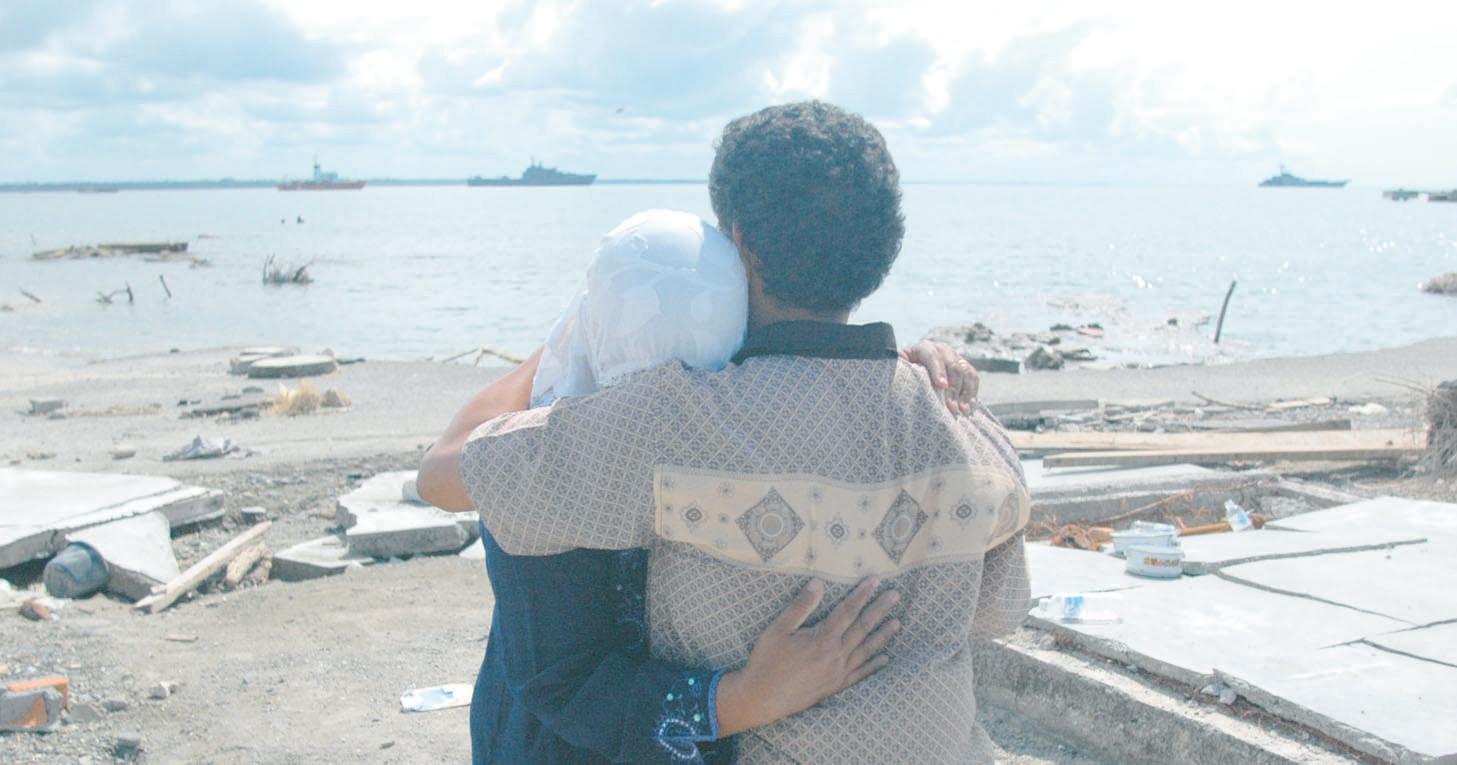
the East have their own cultural mechanisms to deal with trauma. There is a strong social support network in non-Western societies that has enabled these cultures to survive for centuries,” he said.
He said that in Aceh, commission counsellors found a narrow group that needed counselling and an even narrower group that needed psychiatric care or medication.
“In most disasters, we find that 50 percent suffer from psychological distress, which they rebound
from quite quickly. Of that group, 5 -10 percent will suffer from a psychological disorder that requires more long-term care. This appears to be the case in Aceh,” he said.
Poudyal said Indonesia’s Aceh province, near the epicentre of the late-December earthquake and tsunamis that killed more than 200,000 people in the Indian Ocean region, presented a complicated challenge to trauma counsellors because of an ongoing conflict between the military and rebel
groups that resulted in decades of human rights abuses. “In Aceh, death is already ingrained. People expect the worst to happen,” he said. Poudyal said the commission is working with other nongovernmental organisations to quickly develop activities, such as incomegenerating projects, to help people regain some sense of their lives.
The lack of activities in the region could exacerbate the distress survivors feel, he said. CNS
Prayer saved my life, Archbishop says
An Iraqi archbishop kidnapped in January said his abductors were ready to slit his throat at one point, but stopped when the prelate asked to say a prayer.
The prayer turned into an extended conversation with one of his captors and may have helped save his life, said Syrianrite Archbishop Basile Georges Casmoussa of Mosul.
The archbishop was seized by armed men in mid-January and released unharmed less than 24 hours later, following an appeal from Pope John Paul II. He said his captors at first threatened to kill him, then bound him and kept him overnight. He began preparing himself for death, reciting psalms from memory, the
the world in brief
Iraqi archbishop says prayer saved him from death during kidnapping
archbishop said. The next morning, after moving him in the trunk of a car to a house in the country, one of the captors took him out and sat him on the ground, then sat behind him.
“He put the knife to my neck, with a receptacle to collect the blood, and pronounced the name of God, acting as one does when one is slitting the throat of a chicken or lamb,” Archbishop Casmoussa said.
“Finding him determined, I said that if there were really no alter-
“Cult of death” banned
Tucked away in a grimy neighbourhood known for its drug gangs, thieves and smugglers, a small church welcomes people intent on worshipping death. Mexico’s cult of the “santa muerte,” or the death saint, goes back at least three centuries, with Catholics across the country praying before statues of a cloaked skeleton with a long scythe in hand.
Usually, such statues have been found behind closed doors and at informal street altars.
Only in recent years have the death saint’s followers had a church where they could attend services in the presence of the grim reaper look-alike. And since the Mex-USA Traditional Catholic Church opened its
native to my death, could I be allowed to pray? He drew the knife back and let me pray,” he said.
“I prayed in a loud voice: ‘Lord, I place my soul back in your hands. Receive me in your mercy. Forgive my sins. May your will be done,’” he said.
The captor then asked Archbishop Casmoussa if he wanted to add anything personal.
The archbishop prayed for reconciliation in Iraq, for Christians and Muslims to have the chance to live together in harmony and
doors in 1999, the congregation has grown steadily, so much so that its clergy say their next move is to open churches in other major Mexican cities and eventually in the United States. Church members reject accusations by Mexico’s Catholic bishops that they engage in devil worship and instead say the “santa muerte” is just another of Mexico’s many unofficial saints. However, the government is set to take away the group’s status as a religious organisation. The Interior Ministry said on February 15 it was considering the move because the church had registered as a traditionalist Catholic group, not as a cult of the “santa muerte.”
Africa must work together
In a message signed before he went into the hospital, Pope John Paul II said the future
rebuild the country, because “this country deserves to live.”
“He continued to push the knife into my neck. When he noticed I didn’t react and remained calm, he pulled away, saying: ‘No, your words are correct. It will be better if we have you for our cause,’” the archbishop recounted.
There followed a long discussion between the two that touched on God’s justice and human penitence, love between men and women, conjugal fidelity, priestly celibacy, family education and the divine nature of Christ.
His captor asked some questions and didn’t seem terribly interested, but was listening, the archbishop said.
- CNS
Youth want the basics
Young adult Catholics describe themselves as more spiritual than religious and say they want to be involved in the Church and learn more about their faith, but speakers at a February 18 symposium expressed concern that Catholics in their 20s and 30s are often not getting their needs met at their local parishes.
Katherine DeVries, associate director for young adult ministry in the Archdiocese of Chicago, said that many of these young adults have huge responsibilities in their professional lives, yet they come to church and end up “feeling like a kid.”
DeVries pointed out that Catholics in this age group represent “a leadership base that we’re not tapping into” and illustrate how the church “hasn’t passed on the baton.”
To change this, she suggested that parish leaders take an inventory of the involvement by young adults, and in areas where there is a limited or nonexistent young adult presence, she said, they should examine what the reasons for that might be.
She also noted that although today’s young adults are incredibly busy they want to be connected and they want to help - and they also want good liturgies.
Above all, they want to be welcomed, said Sister Diane Guy, a Sister of Notre Dame de Namur and director of young adult ministry in the Diocese of Richmond, Va.
Sister Guy also emphasised the importance of catechises, pointing out that this generation of young adults did not get enough “conscience formation” and needs to understand basic elements of the Catholic faith, such as symbols of the Mass.
There are other gaps in young adults’ faith knowledge, according to William Dinges, a professor of religious studies, who noted that 57 percent of young adults had never even heard of the Second Vatican Council and are “more unclear about what it means to be Catholic.”
Sister Guy noted that older Catholics need to acknowledge the “poor religious education” many younger Catholics received and “take responsibility” for getting them caught up. CNS
peace, stability and development of Africa depend on the ability of Africans to work together.
The Pope said that in calling for a new Synod of Bishops for Africa he hoped to “deepen and prolong” the energy and commitment African Catholics brought to the Church and society following the first African synod, which was held in 1994.
Pope John Paul announced in November that he was convoking a new synod, although he did not announce a date for the gathering.
Generally synods take several years to prepare. The Pope’s letter to the synod planning committee was dated February 23, the day before he was taken to Rome’s Gemelli hospital, where he underwent a tracheotomy to relieve breathing difficulties. The text of the Pope’s message was released on February 25 by the Vatican.
Pope deserves respect
A Canadian cardinal said Pope John Paul II deserves to remain Pope and that the world would have missed opportunities if he had resigned in the 1990s. “He deserves to die in office. It’s a question of respect on our part,” Cardinal Marc Ouellet of Quebec told reporters in Toronto. Cardinal Ouellet said he became concerned about the Pope’s health when he heard the pontiff had a tracheotomy February 24. The cardinal, who worked at the Vatican in 2001 and 2002, said he had been with the Pope a week before the surgery and that, at that time, the pontiff was still strong, despite a 10-day hospitalisation in early February.
“He is still very present,” Cardinal Ouellet said. “He can follow things and even make decisions.”
March 3 2005, The Record Page 9
CNS
Survivors of the tsunamis that destroyed most of the western coast of Aceh province on the Indonesian island of Sumatra embrace. PHOTO:CNS
Passages
Giussani’s genius was to focus on essence
■ By Associate Professor John Kinder
Father Luigi Giussani, who died last week in Milan (Italy), will be remembered as the founder of the church movement “Communion and Liberation” and for his many writings. But he is mourned around the world as the beloved spiritual father of many thousands of people, whose lives have been changed through contact with the life of this simple priest and whose faith in Jesus has been shaped by their relationship with him.
Father Giussani was a challenging figure. The paradoxes of his personality and his life challenge us to see how our own attitudes and faith are shaped by the secular society we live in. Like many of the great figures of our time, Giussani went back to the origins of things, to recover the real meaning of words and ideas and beliefs, stripping them of the layers of ideology that have accumulated over the years.
Father Giussani was born in a small industrial town outside Milan and all his life lived as a simple priest. Yet 12,000 people packed Milan’s majestic Duomo for his funeral and a further 20,000 stood outside in the rain during the twohour-long ceremony.
He wrote to John Paul II last year that he “had never intended to found anything”, yet the movement he led has spread to eighty countries in all continents.
He often told his friends in the movement not to measure themselves by the outcomes of their projects but by the honesty of their motives and the strength of their love, yet people in “CL” as it is known, have organised large-scale projects in social justice, international aid, publishing, etc and his former students have become politicians, bishops, newspaper editors.
“Even if God exists, He is irrelevant”
In 1954 Father Giussani realised that among young people in Italy Jesus Christ and the Christian message were rapidly becoming an irrelevancy. The Church was active, busy and well organised, but faith and life were two separate things for many youths Giussani met at that time: “Even if God exists, He is irrelevant”. Giussani quotes Protestant theologian Reinhold Niebuhr: “There is nothing so absurd as the answer to a question that has never been asked”.
He asked to leave the seminary, where he was beginning a promising academic career, in order to become a Religious Education
Thank you
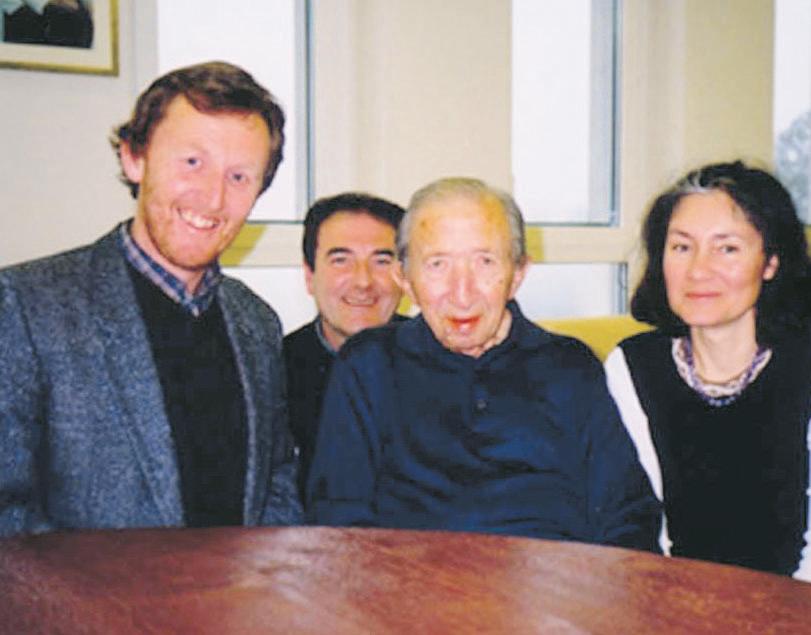
teacher in high school in Milan. His aim was not to convince his students that he was right, but to give them a method so they could verify for themselves if what he was saying was valid for them or not. This method is to test all theories, beliefs and ideals against the reality of our own experience.
The modern world encourages us to ignore the deep desires of our hearts and settle for second best, with short-term satisfactions and easy happiness instead of real joy. Religious faith is tolerated provided it remains a private affair, a set of beliefs and values that help us all live as good and untroublesome citizens. Giussani calls this “moralism” and claims it is the quickest road to certain extinction for the Church.
Father Giussani stressed always (as Cardinal Ratzinger said in his funeral homily) that “Christianity is not an intellectual system or a package of dogmas or a moralism, but is an event, a love story, an encounter”.
The person of Jesus Christ is the definitive response to all the desires and yearnings of the human heart. Jesus did not say He had come to show us the Way, He said He was the Way. As John Paul II put it “We shall not be saved by a formula, but by a Person, and the assurance which He gives us: I am with you!”
So Giussani urged his young students to examine their own hearts searching for what truly satisfied their longing for beauty, truth, goodness. He challenged them to discover their own “religious sense”, that search for meaning which lies at the centre of the human heart.
Faith and reason
Father Giussani worked tirelessly to educate others to the faith, yet he spoke mostly about the dignity of
I wish to thank everyone for your prayers, petitions, cards and well-wishes while I have been in hospital.
I am now recovering slowly and getting better day by day thanks to your generosity, love and prayers.
May God bless you and keep you all. I
human reason. Faith is the highest expression of human reason, for if we use our reason honestly and fully we see that the limit of human reason is the beginning of mystery.
Giussani was a loyal and devoted member of the Catholic priesthood, yet he exalted the importance of the lay person, since the Church exists to bring about the human glory of Christ. His educational work was to develop people who could take their place in the world with a strong sense of their identity as baptised Christians.
Communion and Liberation is the movement that grew out of Giussani’s teaching in schools and universities. It is as paradoxical as its founder. There is no such thing as “joining CL”, you just join in and participate in the various activities – the weekly catechesis called “School of Community”, moments of prayer and worship and moments of simple friendship.
Certain organised forms of community have grown out of the CL experience – the Fraternity, for adults in the world; the Memores Domini, consecrated lay people; groups of priests and religious. However the essence of CL is a companionship guided towards destiny. In his letter to the Holy Father last year on the 50th anniversary of CL, Giussani stated all he had ever wanted to do was to return to the original elements of the Christian fact.
A very human method
And the method Jesus had chosen, during his lifetime on earth, was the direct personal encounter with individuals in the daily reality of their own lives. Those who met Jesus were struck by something exceptional, attractive, even irresistible, and although they did not fully understand who He was at
humbly ask that you continue praying for my recovery. Your brother in Christ…
Fr Paul Baczynski
A newer paper
Readers of The Record may have noticed that this week’s paper looks slightly different
the beginning, they said “If I don’t believe this man I’ll never believe anybody, not even my own eyes.” Those who took this encounter seriously and put themselves on the line by staying with Jesus, he formed into what we call the Church.
Giussani taught, in words and in his life, that the Christian method is still the same today. The truth of Jesus is passed on from person to person, through encounters we do not plan but experience as novelty and surprise. And the way to go deeper into this encounter with the meaning of our lives, is not to to it alone – thankfully it is not all up to us! – but simply to stay with those who have attracted us with something extra in their lives, something we want to share in.
It is only through communion that we can experience the liberation that Jesus brought.
The value of education
This simple message lies at the heart of Father Giussani’s lifelong work in proposing the Christian message to the people of our time. What is needed, he would say, is education: we must all continually educate ourselves to know ourselves better, to discover how the person of Jesus, through the company of those who know Him, is the answer to our heart’s desires.
By going back so forcefully to the origins of the Christian event, Giussani unsettled many in the establishment of his time, even within the Church. But this clear-headed development of his Christian identity allowed Giussani to enter into frank and friendly dialogue with persons of other faiths, and of no faith. He encouraged the study
of literature, music and art, not only looking for mature expressions of Catholic orthodoxy but for all genuine expressions of the search for meaning which is the defining characteristic of the human heart.
A personal encounter
I had the privilege, with my wife, of spending some time with Father Giussani in Milan last year and my lasting memory of that visit was the intensity of his gaze on me. As we sat with him, I really felt that we were the most important persons in the world for him. He gazed on us longing to communicate to us, as he would put it, “his passion for our destiny”. It really was the gaze of Christ. He told us how sorry he was that he would not be able to travel to Australia to meet our family and our friends – Australia was the only continent he never visited.
Communion and Liberation is not widely known in Australia, though in recent years small groups of people have come together, in different parts of the country, to read Giussani’s writings and use them as tools to reflect on their own lives.
In true Giussani style these groups have grown out of unforeseen and often unplanned encounters, and revealed – even to the sceptical and the unwilling – that friendship and communion is the path to liberation, fuller faith and richer living, the “hundredfold” here and now.
John Kinder is Associate Professor of Italian at the University of WA and Head of the Department of European Languages.

to past editions. If they did, they would be right. There are two differences.
Due to fluctuations in newsprint supplies The Record’s printers advised the paper several weeks ago that the-then standard paper size used by the paper for many years had become more difficult to locate.
Consequently, The Record has moved to a slightly bigger newsprint which is 13mm taller. However price will not be affected by
the larger size. The new size also offered the paper the opportunity to develop its layout, and readers will notice different fonts used in headlines and stories throughout the paper.
We hope you like it.
Page 10 March 3 2005, The Record
Obituary
University of WA academic John Kinder with Monsignor Giussani last year, and his wife. Giussani taught that the truth of Jesus is passed on from person to person.
The young Fr Luigi Giussani with students enjoying a relaxing moment. Their contemporaries were to become the founding members of what is today known throughout Italy and elsewhere as Communion and Liberation.
BOOK KEEPING
■ BOOK KEEPING SERVICE
All aspects of small business bookeeping, monthly bank rec, BAS, PAYG, my office or yours. Very reasonable rates. Ph: Margaret 9459 5866, MOB: 0403 778 426
BUILDING TRADES
■ BRICK REPOINTING
Phone Nigel 9242 2952
■ GUTTERS/DOWNPIPES
Need renewing, best work and cheapest prices. Free quote. Ph: Ad 9447 7475 or 0408 955 991 5008.
■ PICASSO PAINTING
Top service. Phone 9345 0557, fax 9345 0505.
MARCH
BUILDING TRADES
■ PERROTT PAINTING PTY LTD
For all your residential, commercial painting requirements. Phone Tom Perrott 9444 1200.
CARER
■ RESPITE OR LONG STAY
Respite or long stay. I am a qualified carer and have vacancies in my home for frail and aged. Twenty-four hour care. Further information and brochure please contact 9397 7037 mob. 0402 265 952.
CATHOLICS CORNER
■ RETAILER OF CATHOLIC PRODUCTS
Specialising in gifts, cards and apparel for baptism, communion and confirmation. Ph: 9456 1777. Shop 12A, 64-66 Bannister Road, Canning Vale. Open Mon-Sat.
CHANGE YOUR LIFE FOREVER
■ WORK FROM HOME
Around your children & family commitments. My business is expanding and I need people to open new areas all over Australia. Training given. Highly lucrative. www.cyber-success-4u.org
FURNITURE REMOVAL
■ ALL AREAS
Mike Murphy 0416 226 434.
HOLIDAY ACCOMMODATION
■ DENMARK Holiday House 3bdr x 2bth, sleeps up to 8. BOOK NOW. Ph: Maria 0412 083 377
■ DUNSBOROUGH
New 4 x 2, great location, sleeps 9. Ph: 0414 579 2315
OFFICIAL DIARY
MUMS ON A MISSION
■ SUCCEED FROM HOME
Call Christine on Tel: 9256 2895
RELIGIOUS PRODUCTS
■ APARACIDA'S CAFE EMPORIUM
Delicious meals, unique giftware for all occasions. Regular workshops and seminars, catering for office and other groups, giftware for schools, parishes, individuals. Ph: 9470 1423, 0414 624 580, email: aparacidas@myaccess. com.au. See ad page 3
■ RICH HARVEST YOUR CHRISTIAN SHOP
Looking for Bibles, CDs, books, cards, gifts, statues, baptism/communion aparells, religious vestments, etc? Visit us at, 39 Hulme Court (off McCoy St), Myaree, 9329 9889 (after 10.30am, Mon-Sat). We are here to serve.
■ PASCHAL/RCIA CANDLES 2005
Carefully hand crafted by Benedictine Sisters www.JamberooAbbey.org.au
Ph: 02 4236 0011 Fax: 02 4236 0041
WEB DESIGN & HOSTING
■ WEB DESIGN & HOSTING SOLUTIONS
For the small business with Ezi Web Pro for good, effective, and functional websites that is user friendly for ultimate online presence. For further info visit www.eziwebpro. com.au <http://www.eziwebpro. com.au/> or phone 9276 4849.
11 Prayer Service and Presentation of Yr 12s Youth Book, St Norbert’s College - Bishop Sproxton
Visit Vietnamese Centre - Bishop Sproxton
4 World Day of Prayer Service, Wesley Church - Fr Brian O’Loughlin VG
5 CBC Kalgoorlie Old Boys Association Dinner and celebrating centenary of the establishment of CBC Kalgoorlie - Archbishop Hickey
6 Mass and Procession for Annual Harvest Festival, Pickering Brook - Archbishop Hickey
Mass celebrating First Anniversary of Kwinana Church and Farewell to Sisters of St Joseph of the Apparition - Bishop Sproxton
9 Mass at Curtin University - Archbishop Hickey
Mass and Presentation of Yr 12s Youth Book, Lumen Christi College - Bishop Sproxton
Reconciliation, Manning - Bishop Sproxton
11 Talk for Yr 11s of CBC Fremantle - Archbishop Hickey
Sunday March 6
13 Mass to celebrate St Patrick’s Day, St Patrick’s Basilica - Archbishop Hickey
Vespers, St Mary’s Cathedral - Archbishop Hickey
15 Harmony Week Breakfast, Aranmore College - Archbishop Hickey
16 Presentation of Yr 12s Youth Book for Aranmore College - Bishop Sproxton Meet with Rockingham Parish Council - Bishop Sproxton
17 Mass for Irish Club, Subiaco - Bishop Sproxton
Reconciliation, Bateman Parish - Bishop Sproxton
17-19 Graduation Ceremony John Paul II Institute, Melbourne - Archbishop Hickey
PANORAMA a roundup of events in the archdiocese
ETERNAL WORD TELEVISION NETWORK
1 - 2 pm on Access 31: Life or death for Terri Schiavo/ Robert Schindler (Terri’s father), and solicitor David Gibbs, with Raymond Arroyo (The World Over). Please send donations to keep these wonderful Catholic programs on air to The Rosary Christian Tutorial Association, PO Box 1270, Booragoon 6954. Tapes are available on request. Enq: 9330 1170. Web site: http://www.cathworld.org/worlds/ org/media/
Monday March 7
NOTHERN SUBURBS MENTAL HEALTH SUPPORT
Next meeting is at the Whitfords Parish centre from 7.30-9pm.
March 7-11
LENTEN RETREAT
Fr Jerry Neagle CSsR is conducting a parish retreat embracing the theme of the year of the Holy Eucharist in Mater Christi parish church, 340 Yangebup Road, Yangebup each day 6.45am Mass and talk followed by breakfast, 9am Mass and talks followed by morning tea, 7.30pm evening session followed by supper. Child minding available for evening sessions. You will always find a warm welcome at Mater Christi.
Tuesday March 8
CELEBRATING MARY MACKILLOP
You are welcome to pray at Mary MacKillop’s Shrine, on the eighth day of every month. Sisters of St Joseph Chapel 16 York St, South Perth Enq: Sister Maree 9334 0933
Thursday March 10
MENTAL HEALTH SUPPORT GROUP
Kelmscott meeting 12noon, with light lunch at the Church of Good Shepherd Parish Hall, 42 Streich Ave Kelmscott. Enq: Barbara Harris Emmanuel Centre 9328 8113, Clive 9495 1919, Charles 9497 7170
Thursday March 10
REFLECTION DAY IN LENT FOR WOMEN
Come to a place and rest for prayer and reflection, from 9.45am-1pm at the Schoenstatt Shrine, 9 Talus Drive Armadale. Cost by donation. BYO shared lunch. Tea and coffee provided. Enq: Sr Renee 9399 2349
Friday March 11
THE WORLD APOSTOLATE OF FATIMA
Invites you to a three hour evening Vigil, begin-
ning with Stations of the Cross at 6pm, followed by Holy Mass and Exposition, with Rosary, prayers and Benediction at Our Lady of Fatima Church, 8 Foss St Palmyra. Refreshments available. Pope John Paul II has granted a plenary of indulgence for Catholics who participate in veneration of the Blessed Sacrament during the Year of the Eucharist.
Saturday March 12
MOVIE PIZZA NIGHT
The Disciples of Jesus Covenant Community will be viewing The miracle of Our Lady of Fatima in honour of Sr Lucia, the last visionary of Fatima, to help aid the underprivileged in Peru and Papua New Guinea at 67 Howe St Osborne Park from 6pm. Bring your friends. Cost includes pizza and drink, children under 12 free/donation. Enq: Vicki 9445 7262, 0404 666 597 Sandra 9244 3425, 0417 963 911
Sunday March 13
A NEW ALPHA COURSE STARTING
If you haven’t tried Alpha yet, here’s your chance. It’s all about Jesus, faith, fun and friendship. For young and old, all welcome. Free welcome dinner at 5.30pm at St John’s Centre, 16 Aberdeen St Northbridge. Enq: 9444 4626
Monday March 14-16
LENTEN MINI MISSION
Presented by Norma Woodcock at St Jude’s Church, 20 Prendiville Way, Langford, 7.30pm-8.30pm. All welcome Enq 9458 1946
Wednesday March 16
GROWING CIRCLES OF TRUST
Workshop with Fr Justin Belitz OFM, St Francis Xavier Parish 10 Third Rd Armadale, 7pm. Fr Justin will discuss strategies such as sharing God’s word, sharing our story and respecting others. Ph 9399 2143 to book
Saturday March 19
DAY OF PRAYER FOR YOUNG MEN
On the feast of St Joseph and eve of Holy Week, Fr Hugh Thomas will conduct a day of prayer and reflection for young men considering their vocation. Redemptorist Monastery 190 Vincent St North Perth 9am-5.30pm Ph 9328 6600 by March 19.
Saturday March 19
HOLY HOUR FOR VOCATIONS
Expositions of The Blessed Sacrament will be held at the Redemptorist Church from 10am-11am.
Saturday March 19
SEVEN CHURCHES WALK
This year’s walk commences with Holy Mass in the Cathedral at 8.30am. The walk starts from the Pro Cathedral at 9.15am and visits All Saints Chapel, Greek Orthodox Cathedral, St Brigid’s West Perth, Redemptorist Monastery, Sacred Heart Highgate and finishing at the Cathedral. BYO lunch. Enq: Tony 9450 2627 or Fred 9245 4843.
Sunday March 20
RELIGIOUS STUDIES PRESENTATION
Third part of Queen of All Saints Bible Forum at All Saints Chapel, 77 Allendale Square St. George’s Terrace, Perth: Bible Focus 3pm; Church History 4pm; true Devotion to Mary 5:30pm; 6:15pm Rosary and Benediction. Final Part IV of the series 17 Apr. at the same times.
Sunday March 20 ST JEROMES SCHOOL/PARISH FETE
9am - 2pm Stalls, rides, hot food, refreshments, raffles, Auction 12noon, and much more. Cnr Rockingham Rd and Troode St Munster.
Tuesday March 22
CHRISM MASS
Archbishop Hickey will concelebrate with the Priests of the Archdiocese of Perth in St Mary’s Cathedral at 7.30pm. During this Mass the Holy Oils will be blessed and the Oil of Chrism consecrated. The Priests will also renew their Ordination commitment and the Laity are invited to renew their commitment to holiness of life and to service of the Church and society.
Holy Week
ANCIENT CEREMONIES OF TENEBRAE IN HOLY WEEK
Sung at the close of day, in order to signify the setting of the Sun of Justice and the darkness of those people who knew not our Lord and condemned Him to the gibbet of the Cross. Candles are extinguished gradually as the office is a funeral service commemorating the death of Jesus Christ, as indicated by the sung Lamentations of Jeremias the Prophet. Sung Tenebrae responsories were written by Tomas Luis de Victoria (d.1611). Wednesday March 23 at 8.30pm and Maundy Thursday March 24 at 9pm, St Francis Xavier Church, Windsor St, East Perth. Good Friday March 25 at 6pm Immaculate Conception Chapel, Mercy convent Mercedes College Victoria Square Perth. Enq: Fr Michael Rowe 9444 9604.
HOLY WEEK TRIDUUM IN THE TRADITIONAL LATIN RITE St John’s Pro-Cathedral Victoria Ave, Perth. Maundy Thursday 6.30pm Latin Mass followed by Adoration. Good Friday 1.30pm Stations of the Cross, 3pm Solemn Liturgy of Passion & death of Our Lord (fast & abstinence), Holy Saturday Vigil 10pm Ceremonies and Mass of Easter. Easter Sunday 7.30am & 9.15am & 11.15am Latin Mass. Enq: Fr Michael Rowe 9444 9604.
THE JULIAN SINGERS
We are an enthusiastic group with voices primed and tuned ready to sing at weddings, Masses and other occasions in churches and venues as required. Payment by donation. We are seeking new members. You are welcome to join us any Wednesday night 7.30 to 9.30pm for practise at East Perth to see if it is your kind of fun and enjoyment. Enq: Chris 9276 2736 and Angela 9275 2066.
DIVINE MERCY HOLY HOURS
The Divine Mercy Apostolate invites you all to come and join us by rolling out the red carpet for Jesus in the following churches; St Mary’s Cathedral each first Sunday of the month from 1.30/3.15pm with a different priest each month. St Francis Xavier Church, Windsor St East Perth each Saturday at 2.30/3.30pm. There are approximately 20 Divine Mercy Holy Hours held each week throughout the Archdiocese of Perth. Enq: John 9457 7771.
LENTEN VESPERS AT THE CATHEDRAL
Vespers Evening Prayer is sung at St Mary’s Cathedral every Sunday during Lent at 4.30pm, preceding the 5pm Mass. Join members of the Cathedral Choir in offering this choral praise to God as part of your Lenten program.
CROSS ROADS COMMUNITY
Term 1 – 31st January to 8th April for: Family & Friends Support Groups of Substance Abusers on Wednesdays 7–9pm, Substance Abusers Support Groups on Tuesdays 5.30– 7.30pm & Friday’s All day Group for Substance Abusers 9.30am–2pm, Bible Night: Tuesdays 7–9pm & Healing Mass: Fridays 12.30pm. Women’s Wellness Group: Tuesdays 12.30pm. Daily Rosary: 12.30-1pm. Exercise
Program: Monday & Wednesday 10-11am,Thursday 4-5pm & Friday 9.30-10.30am.
March 3 2005, The Record Page 11 Classifieds Classified ads: $3.30 per line incl. GST 24 hour Hotline 9227 7778 Deadline: 5pm Tuesday ADVERTISEMENTS
RELIGIOUS PRODUCTS Classifieds Eugene 9227
7778
The Last Word
The Lent of Trent
■ By Michelle Jones
Why did God make you? If you responded with the Roman Catechism’s: ‘God made me to know Him, to love Him, and to serve Him in this world, and to be happy with Him forever in the next,’ it shows that, 450 years on, the Council of Trent still exercises influence!
Actually, the lasting impact of this remarkable Council is widespread and often unrecognised. Thanks to the deliberations that occurred amongst the over 200 bishops, cardinals and heads of religious orders who met at various times between 1545 and 1563, we have, for example, the definition of the number of sacraments as seven, the determination of the canon of Scripture, and the requirement that Catholic marriages take place in the presence of a priest.
The Council of Trent had the dual objective of clarifying the doc-
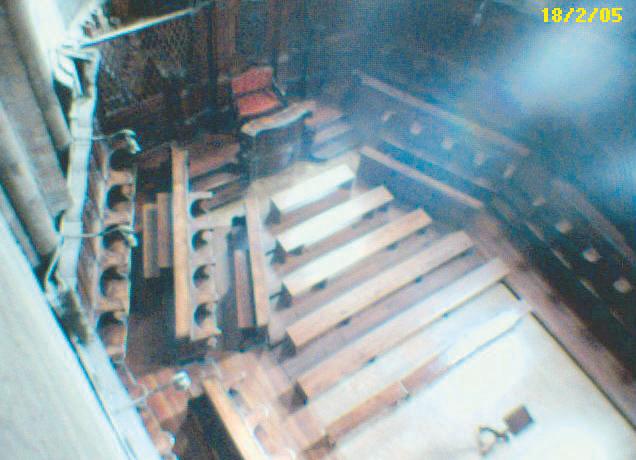
trines of the Church in response to the teachings promulgated by the Protestant reformers and renewing the inner life of the Church by removing abuses that had devel-
oped within it. It was a sort of ‘Lent’ for the Church – a time of refocusing on Jesus and defining our identity in the light of Him. This Lent, I decided to pay a visit to Trent
myself. As the train hurtled to this small city in Italy’s north – at one time a stone’s throw from the hotbed of Reformation fervour – my mind turned to the far less efficient and agreeable travelling conditions endured by the Council Fathers.
In Trent itself, I imagined the Cathedral and local castles bustling with the impressive entourage of ecclesiastics who were facing questions of unprecedented importance. The Trent of today is no longer conspicuous for its role as host of the famous Council – in fact you could easily pass through the place unaware of its history.
Nevertheless, the full Cathedral for 3pm Friday Stations of the Cross, the steady stream of people young and old into local churches to light candles and pray – and no less, the West Australians conscious that God made them to know, love and serve Him – testify to the ongoing flourishing of that faith which was pruned and purified at the Council of Trent.
May our own personal Lents bear such lasting fruit.
I'll stick to fish on
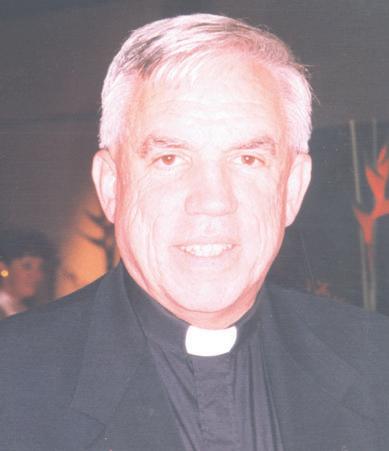
Question: While I recognise the biblical foundations of fasting, I don’t understand why the Church asks for abstinence from meat on Ash Wednesday and Good Friday. In Mark 7:20 it says: “Thus he (Jesus) pronounced all foods clean.”
Fasting is understood by the Church as the complete or partial abstaining from food in general. On Ash Wednesday and Good Friday, Catholics fast by eating only one full meal. One or two smaller meals – snacks – are permitted to sustain strength. This is a partial fast, compared with a total fast (such as might be required before certain medical tests).
Abstinence is understood by the Church as abstention from eating meat or certain meat products (gravy, etc.) as a religious practice on days of penance. Thus on Ash Wednesday and Good Friday,
Catholics not only fast, but they also abstain from meat.
This is not to say that meat is “unclean”. Remember, the Jewish religion promotes the concept of the Jewish people as a holy people. The Torah (the Law, i.e., the first five books of the Bible) includes many regulations which were intended to protect the nation from contamination, both physical and spiritual.
Since the Hebrew nation was a small one, and had its origins as a nomadic people, some of these regulations had their origin in sensible health precautions, to permit the people to multiply and prosper with minimal threat from disease. Thus they were forbidden to eat meats which could not be properly preserved without risking disease: pork, rabbit, camel, and badger (Leviticus 11:4ff; Deuteronomy 14:7) There were other regulations about touching corpses, people with skin diseases, and so forth.
He who had become flesh for us in the Incarnation, now gave it up for us in the Crucifixion.
The text from the Gospel must be taken in context. Jesus was responding to Pharisees who challenged His disciples for not meticulously washing their hands before eating (those fellows were watching everything, weren’t they?). Jesus criticised them for being more concerned about obeying the law about washing hands than they were about obeying the Fourth Commandment, which says: “Honour your father and your mother.”
You see, the Pharisees permitted a man to bequeath his estate to the Temple – which was fine, as long as he didn’t have others to support, like his elderly parents. Jesus said that ignoring the needs of one’s
“The Trent of today is no longer conspicuous for its role as host of the famous Council – in fact you could easily pass through the place unaware of its history.”
Michelle Jones, formerly of the Catholic Mission office in Perth, is in Rome pursuing doctoral studies and occasionally writing for The Record.
Fridays!
out into the sewer?” (Mark 7:19) A bit graphic, but He made His point.
Nevertheless, the first Christians – most of whom were still following the precepts of the Torah – faced some dilemmas in trying to balance

parents flew in the face of the true meaning of the Torah, which is all about love and respect.
He went on to say that true spiritual uncleanliness came from one’s evil intentions of the heart, and not from whether one had washed his hands or not: “Can you not see that whatever goes into a man from outside cannot make him unclean, because it does not go into his heart but through his stomach and passes
the two faiths. Thus the Apostles met in council in Jerusalem and issued this directive: “You are to abstain from food sacrificed to idols, from blood, from the meat of strangled animals . . .” (Acts 15:29) As time went on, even these holdovers from Levitical law disappeared from Christian practice. But abstinence from meat on penitential days remained. Why?
Christian abstinence has noth-
ing to do with “clean” or “unclean” foods. Instead, we make a connection between abstinence and the death of Christ. On Good Friday, Jesus gave His life for our salvation. He who had become flesh for us in the Incarnation, now gave it up for us in the Crucifixion. The observance of abstinence from meat in commemoration of the Lord’s passion and death became common in both the Eastern and Western Church. Tertullian and St Clement of Alexandria (early 200’s) refer to it in their writings, as do St Cyprian and St Augustine (late 300’s).
Canon law states: (1250) The penitential days and times in the universal Church are every Friday of the whole year and the season of Lent. (1251) Abstinence from eating meat or some other food according to the prescripts of the conference of bishops is to be observed on every Friday of the year unless a Friday occurs on a day listed as a solemnity. Abstinence and fasting, however, are to be observed on Ash Wednesday and Good Friday.
(1253) The conference of bishops can determine more precisely the observance of fast and abstinence as well as substitute other forms of penance, especially works of charity and exercises of piety, in whole or in part, for abstinence and fast.
Weak human beings that we are, many Catholics have taken “substitution” to mean “do nothing”. But we should not lightly dismiss abstinence. It is a part of the virtue of temperance that controls the desire and use of food. Without virtue we cannot become holy, and unless we are holy we can have no part in God’s kingdom.
So I’ll have fish on Friday, thanks!
Page 12 Month 03 2005, The Record
The picture may be a little hard to interpret, but this is the interior of the building where the Council of Trent was conducted, looking down upon the benches used by the Church’s bishops.
Photo: Michelle Jones
■
dear padre
With Fr Timothy Deeter






















































 ■ With Mark Reidy
■ With Mark Reidy











